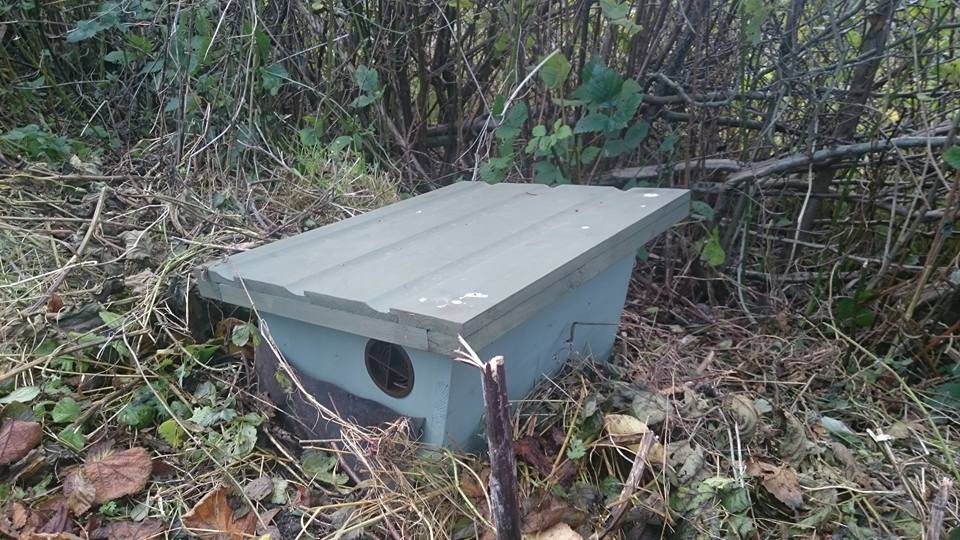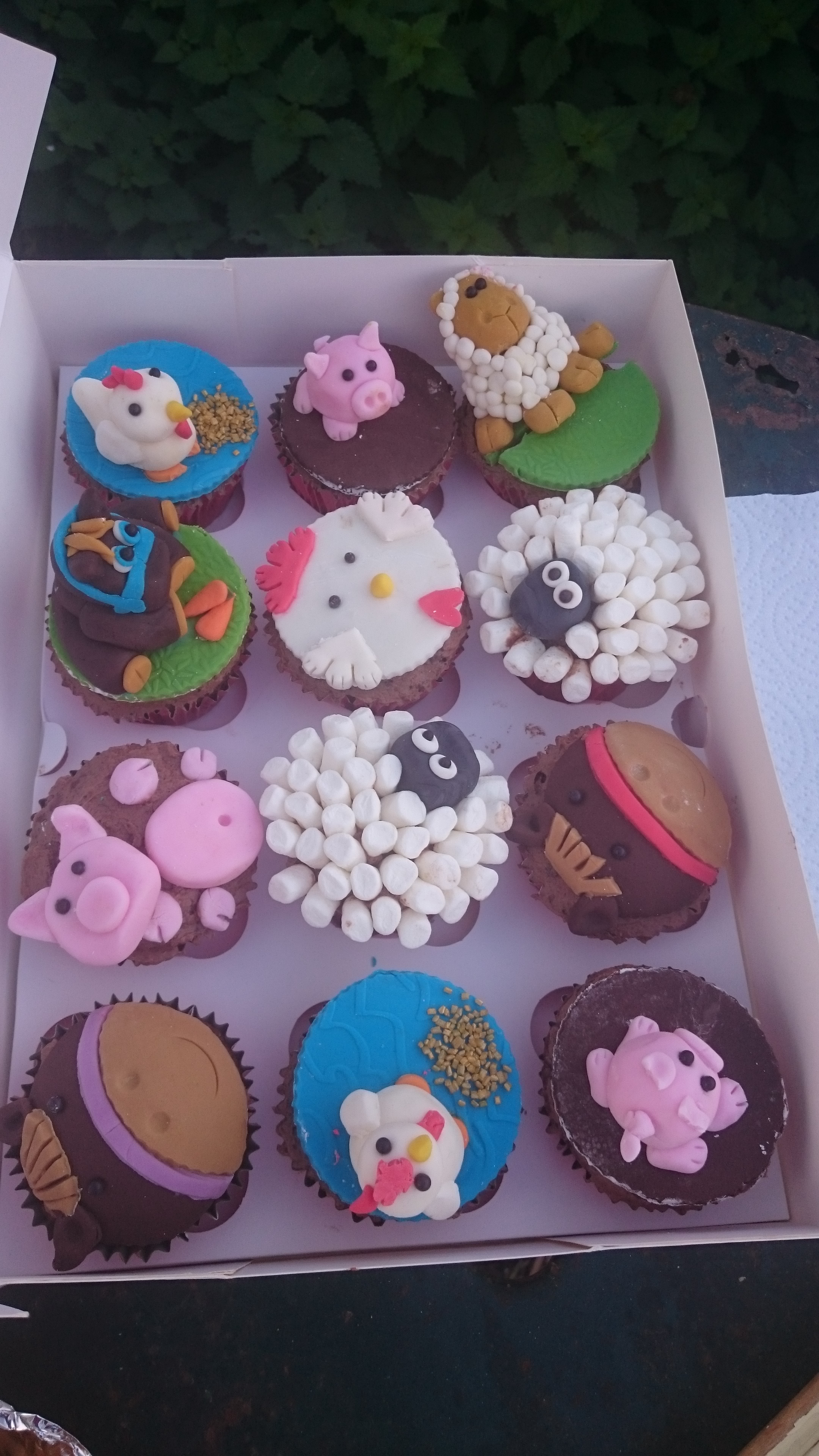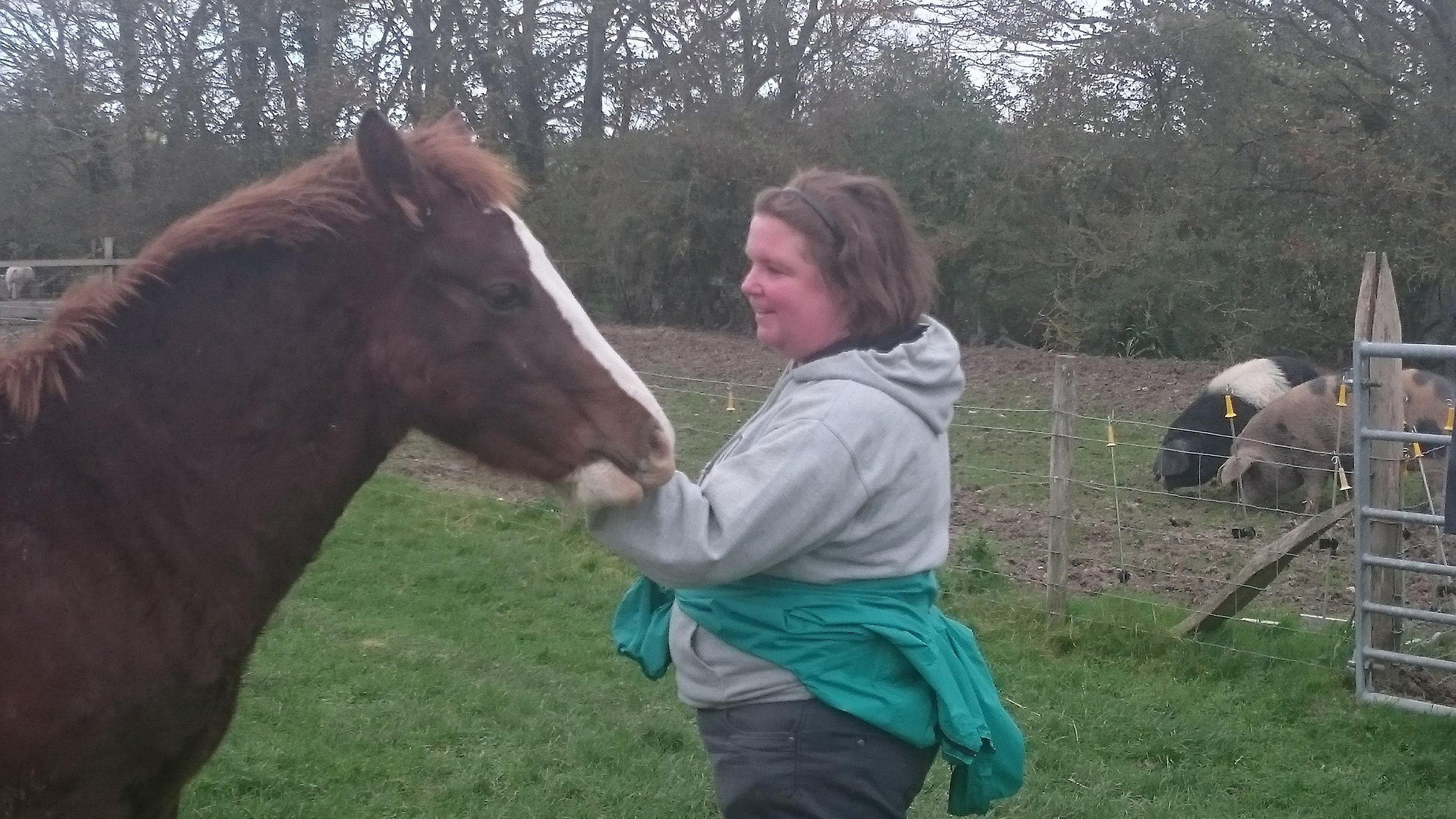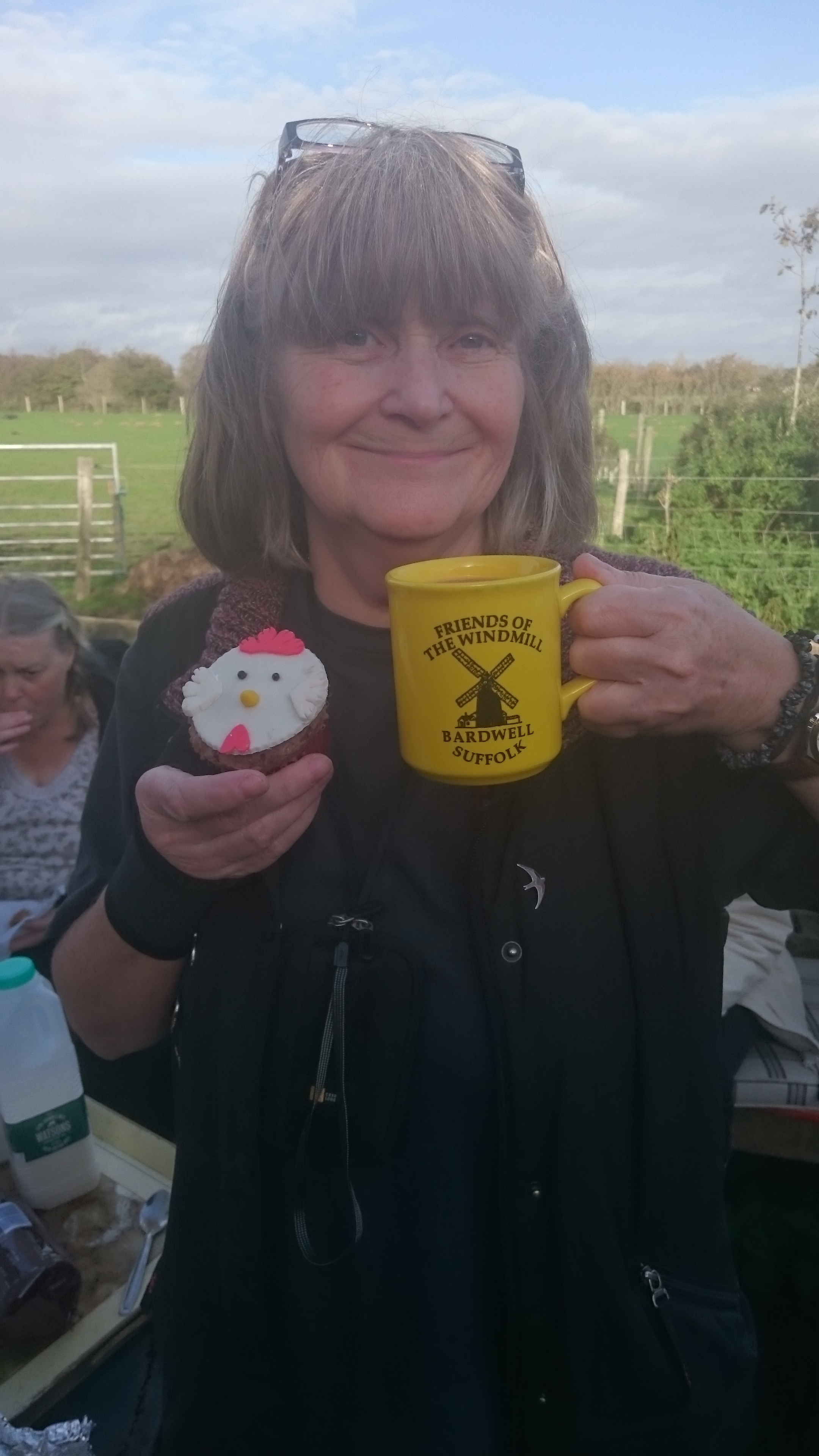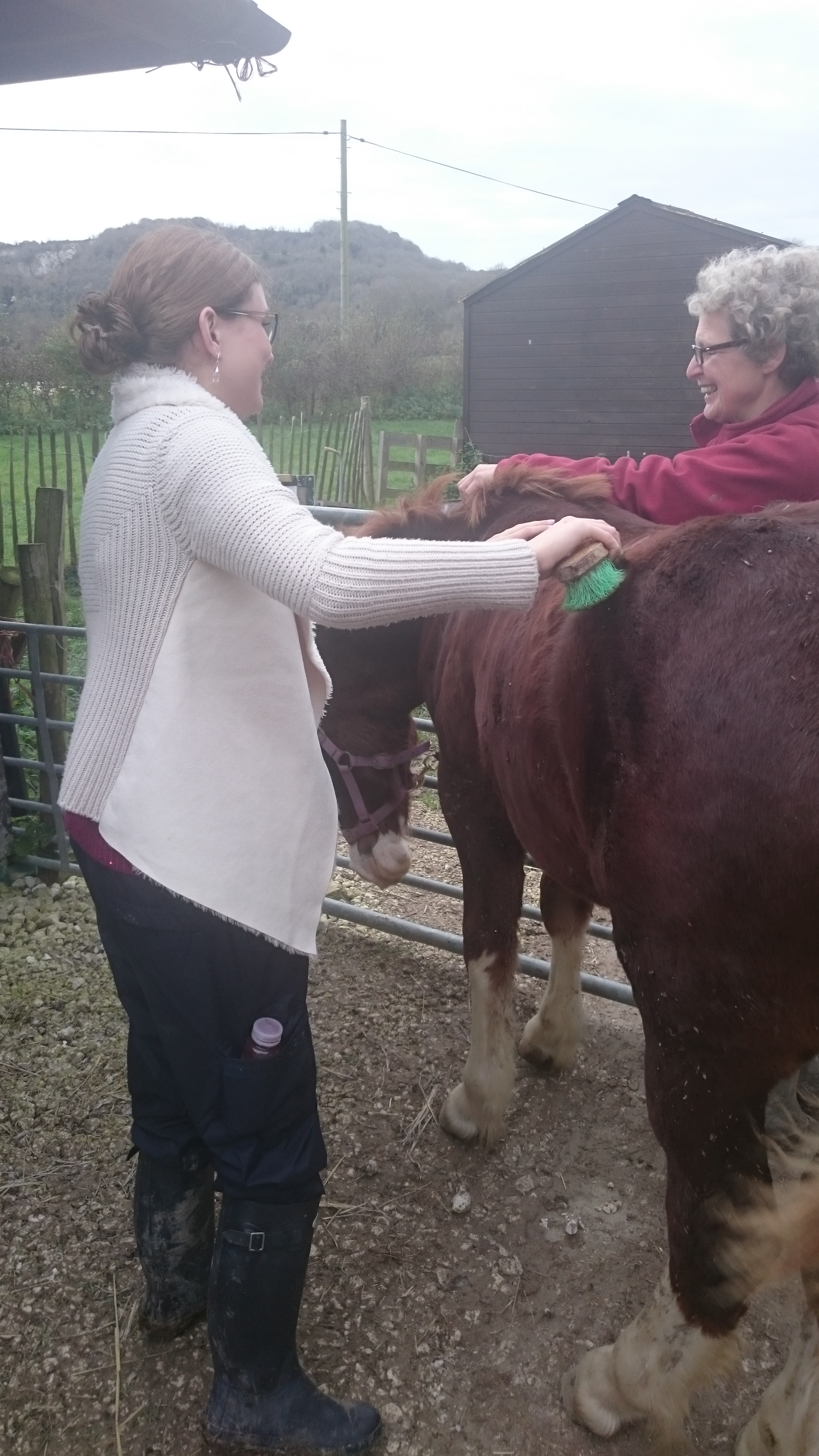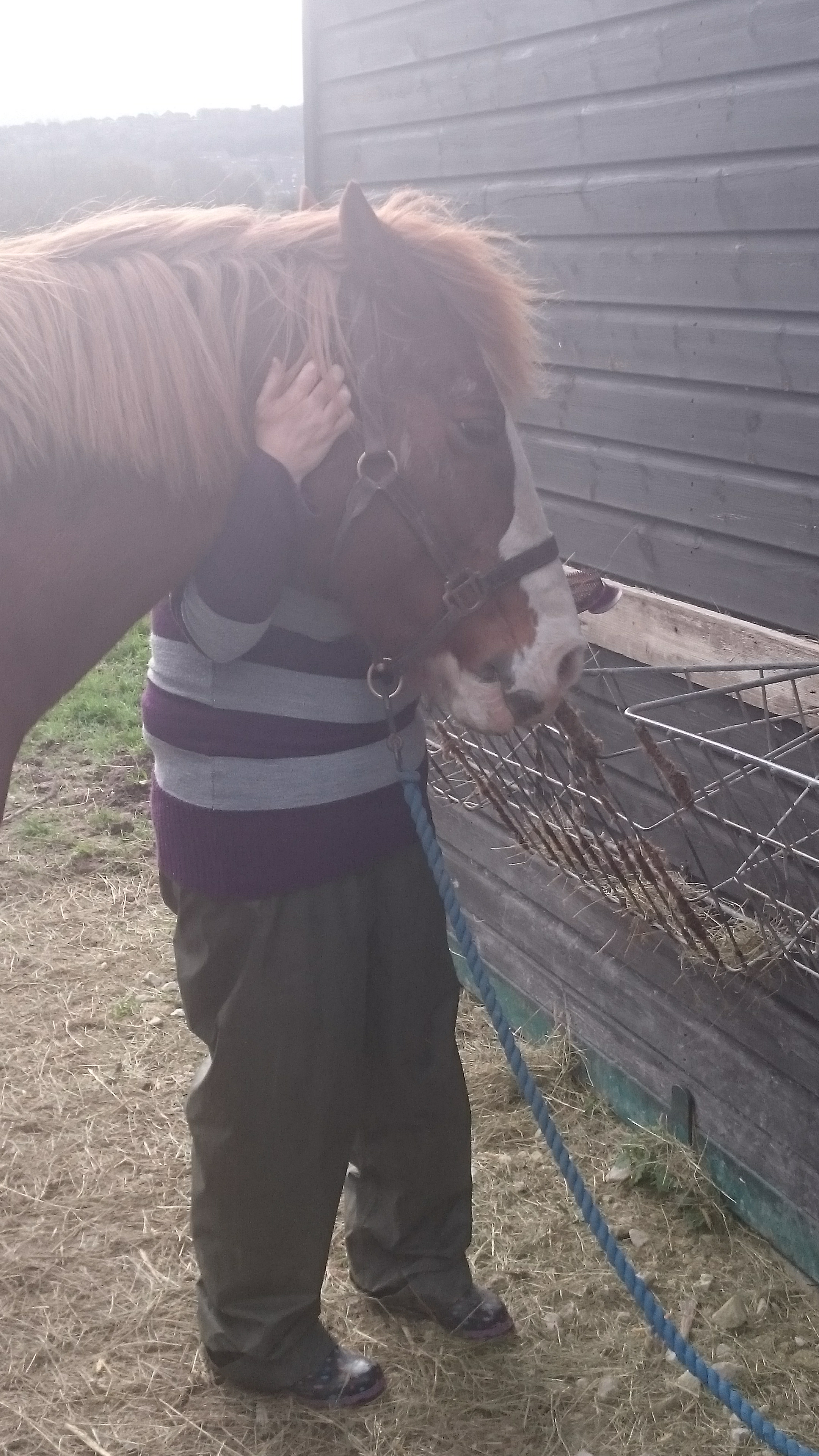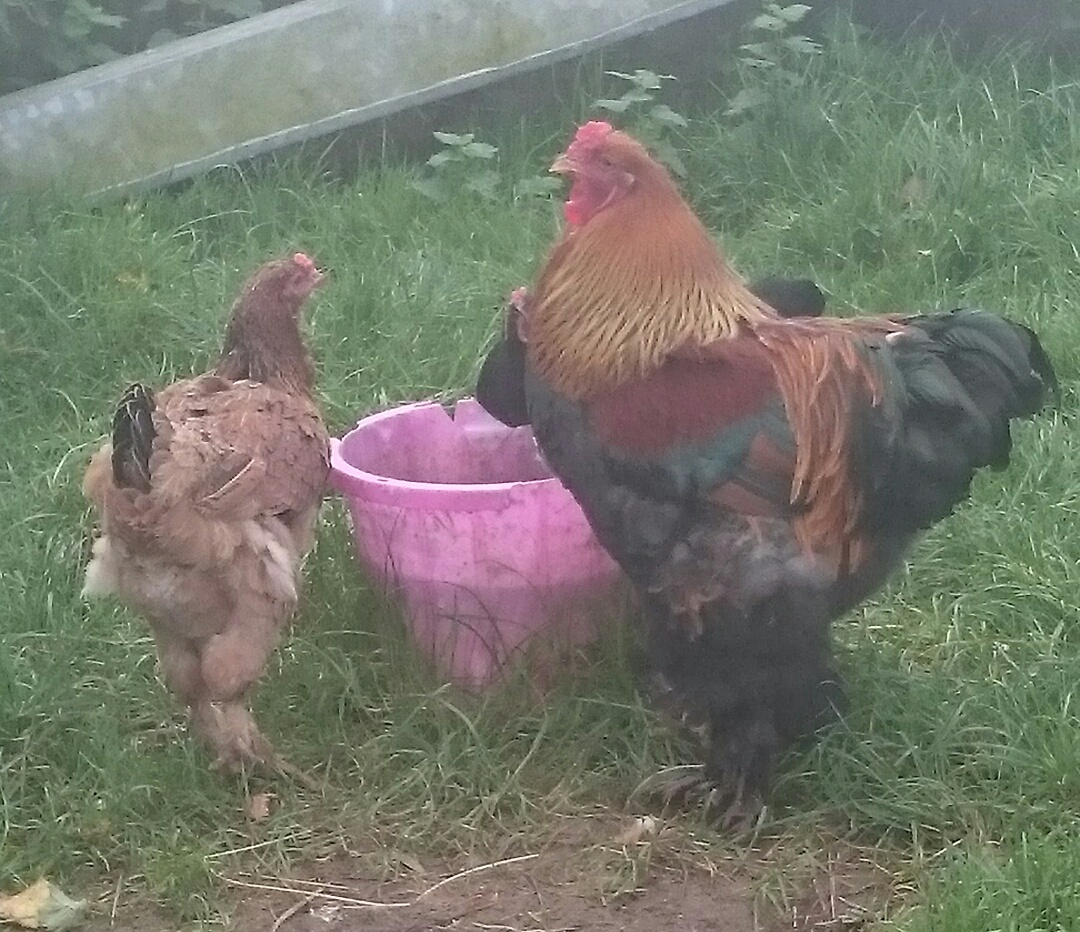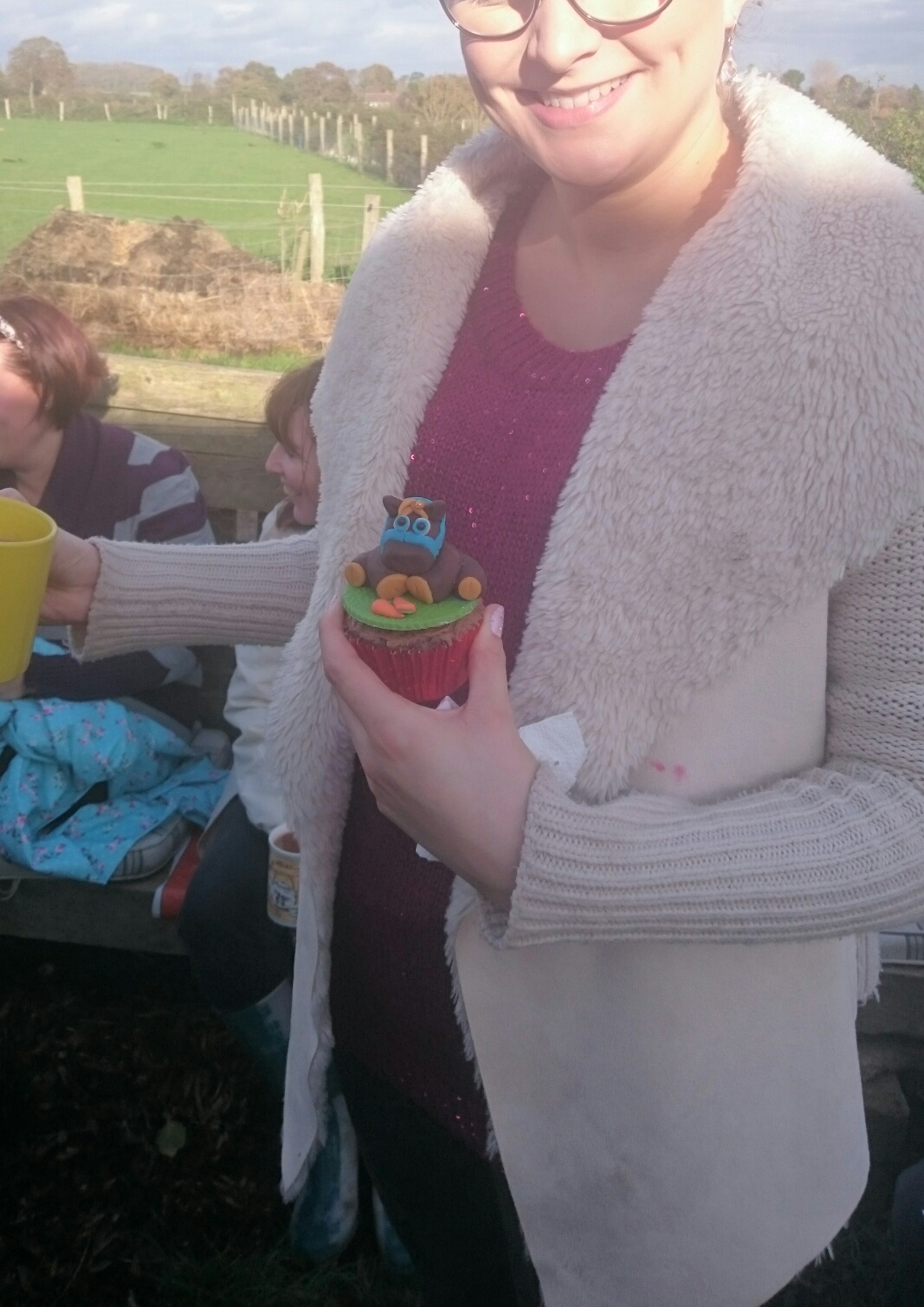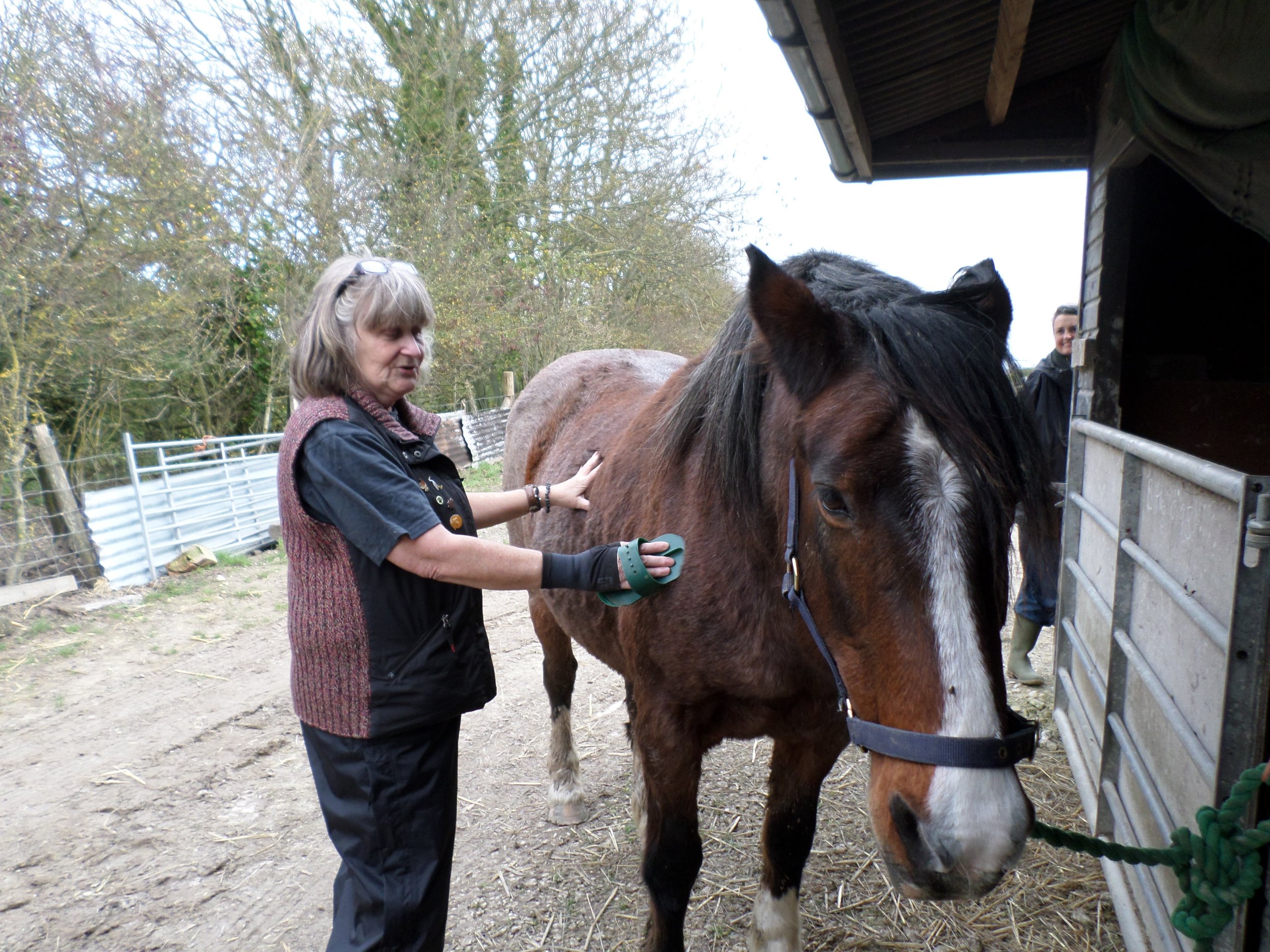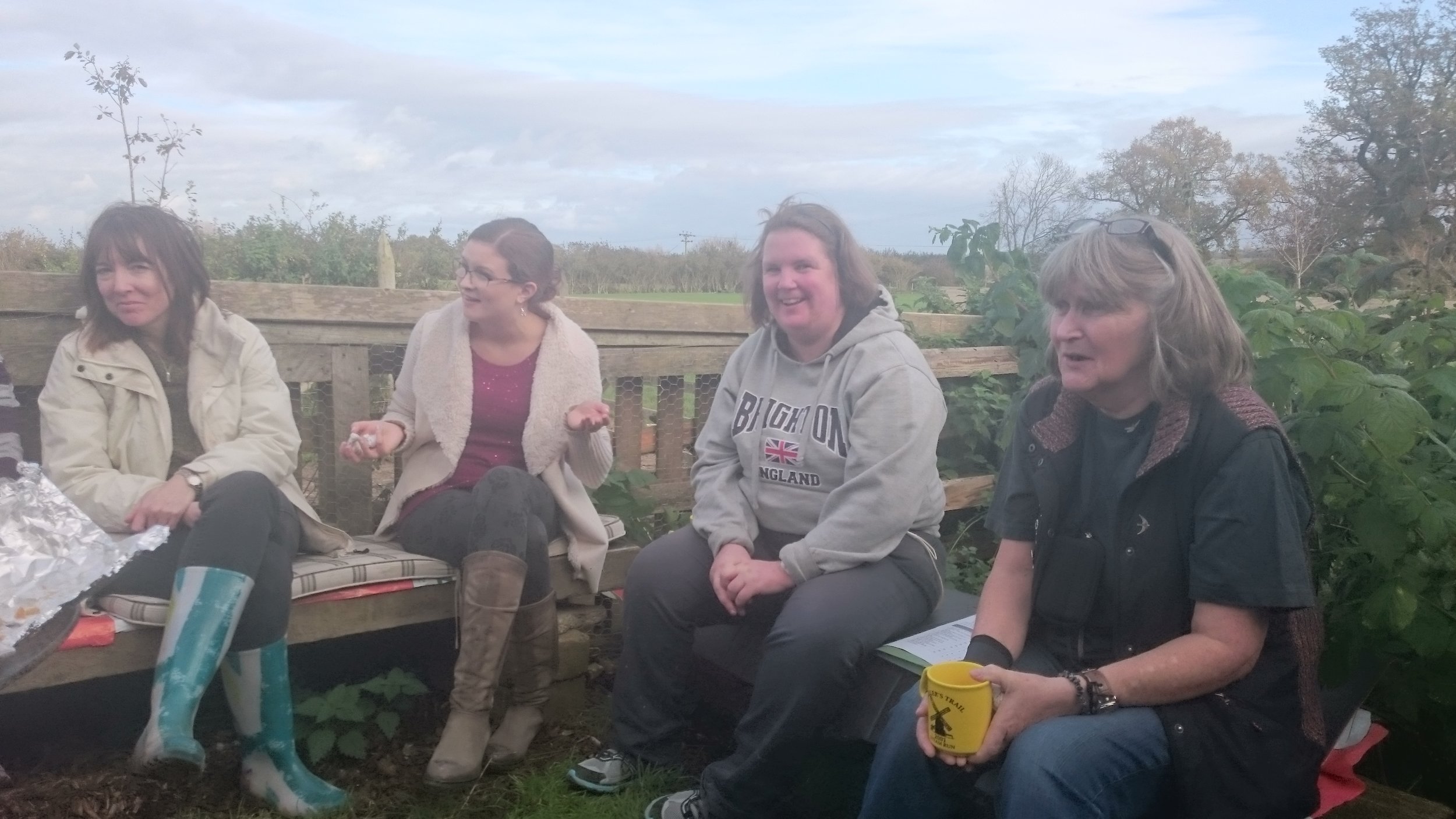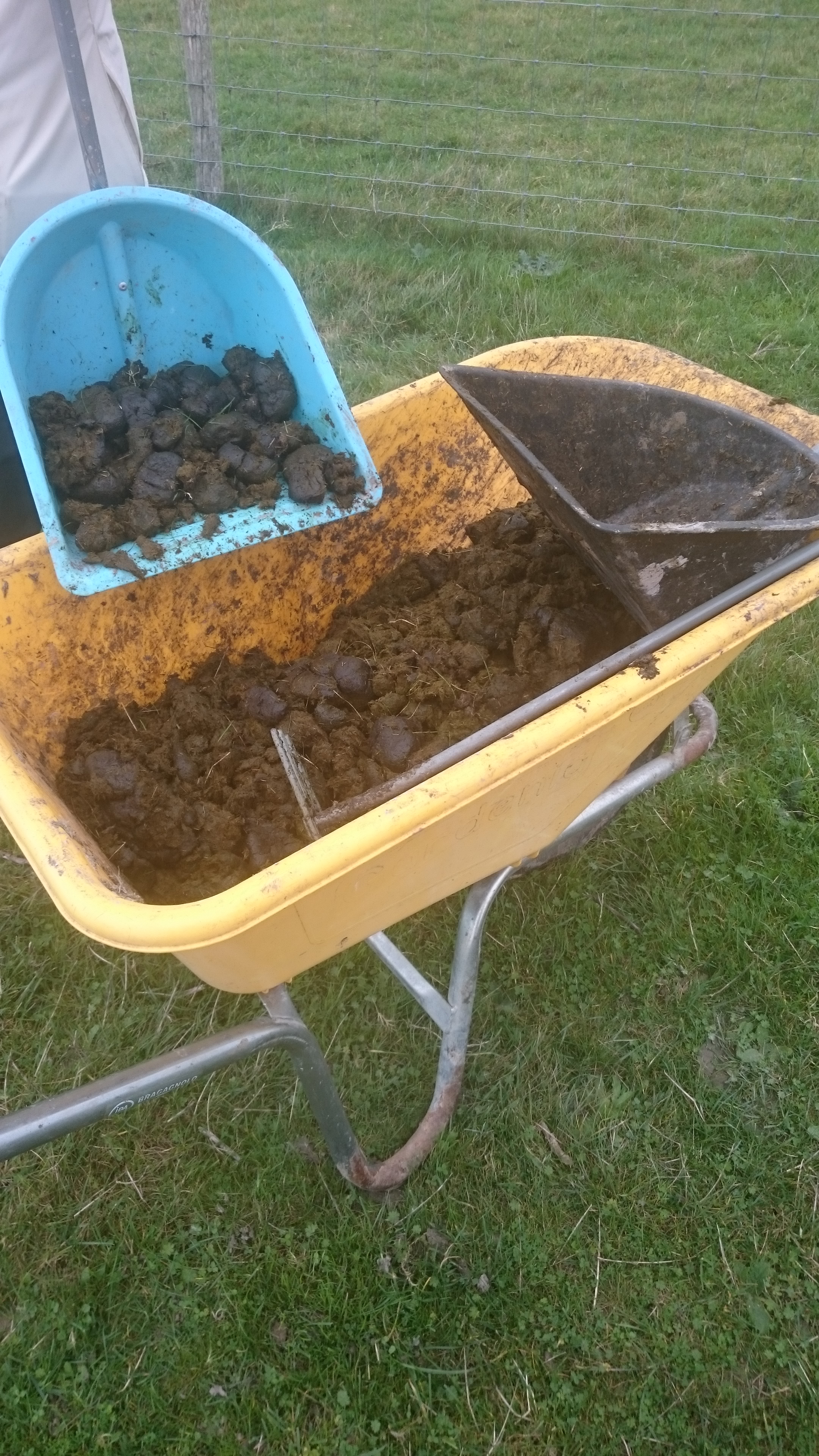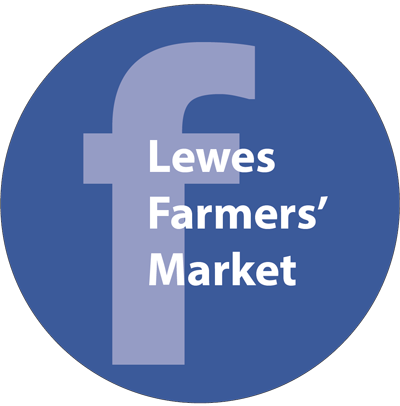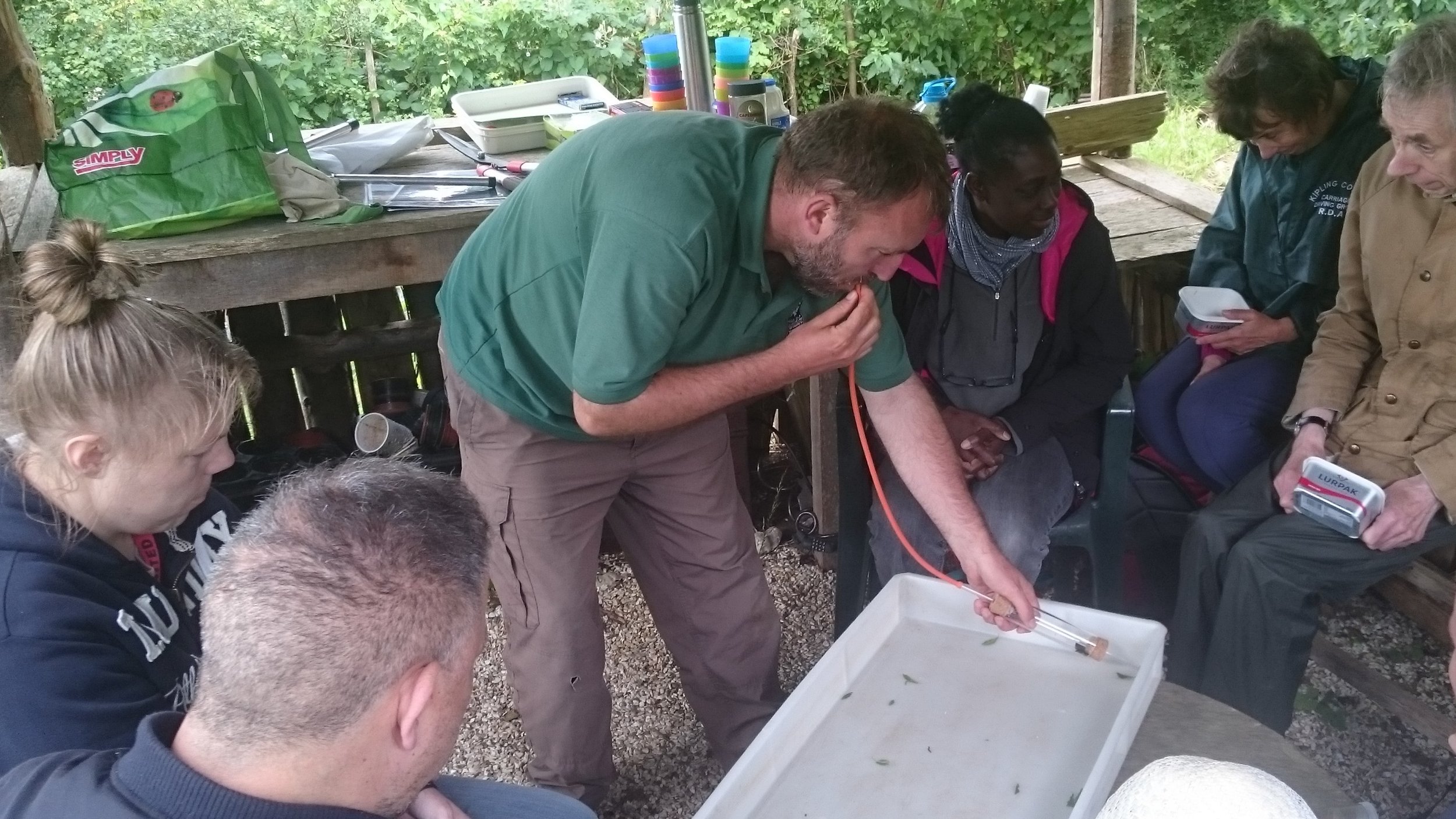 Wed 29 June 2016
Wed 29 June 2016
We had a special event for our Wednesday allotment morning group (which includes clients from the St Nicholas Day Centre in Lewes, as well as other allotment members). There were fifteen of us in total.
Community Wildlife Officer for Sussex Wildlife Michael Blencowe came along with a bag of tricks to help us hunt for and identify bugs on the allotment. He also did a walking tour looking for signs of summer, and told us a bit about his job.
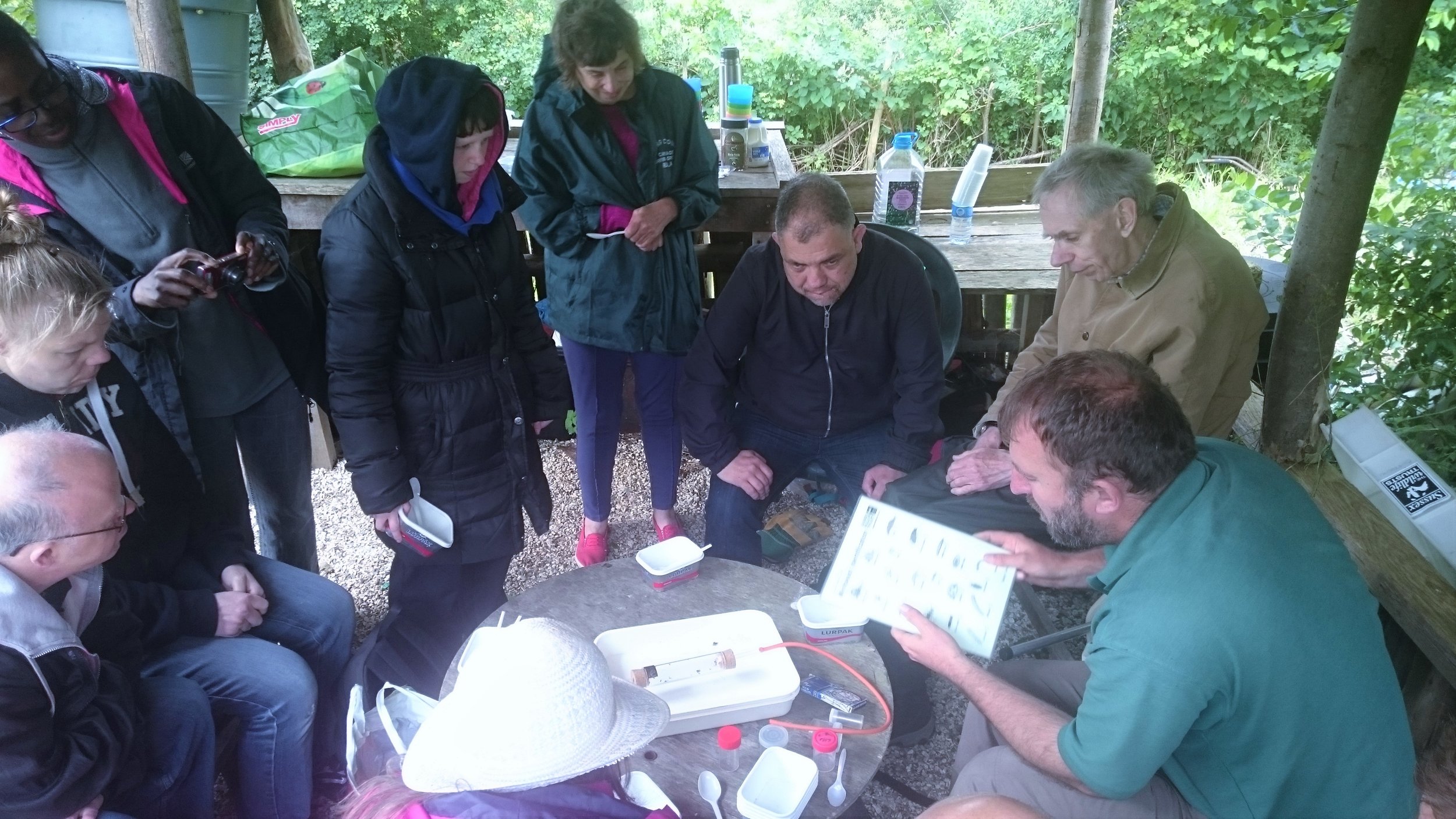 Michael's Talk
Michael's Talk
First, Michael told the group about the history of the landscape around us, how the South Downs came to be as we know them now, with the variety of wildlife that we now have. Grazing sheep have played a part in it - but millions of years ago, Lewes was under the sea. The chalk under our feet is made up of the crushed bones of long-dead animals - including dinosaurs. He showed us pictures to help us understand.
Bug Hunting
Because this was a summer visit to our allotment, Michael said he had hoped to show us butterflies and hoverflies - but the cold, breezy weather meant there weren't many to be seen.
Michael gave out plastic tubs and spoons to everyone to pick up insects. He also showed us about his new toy, a glass tube or 'pooter' he had brought along for sucking up bugs for us to examine. We all felt a bit horrified at the idea of sucking up a bug and swallowing it, but he said that didn't happen :).
He talked about different habitats for insects - there are lot of insects in long grass, and in the nettles. He had a net he wafted in the long grass to collect insects.
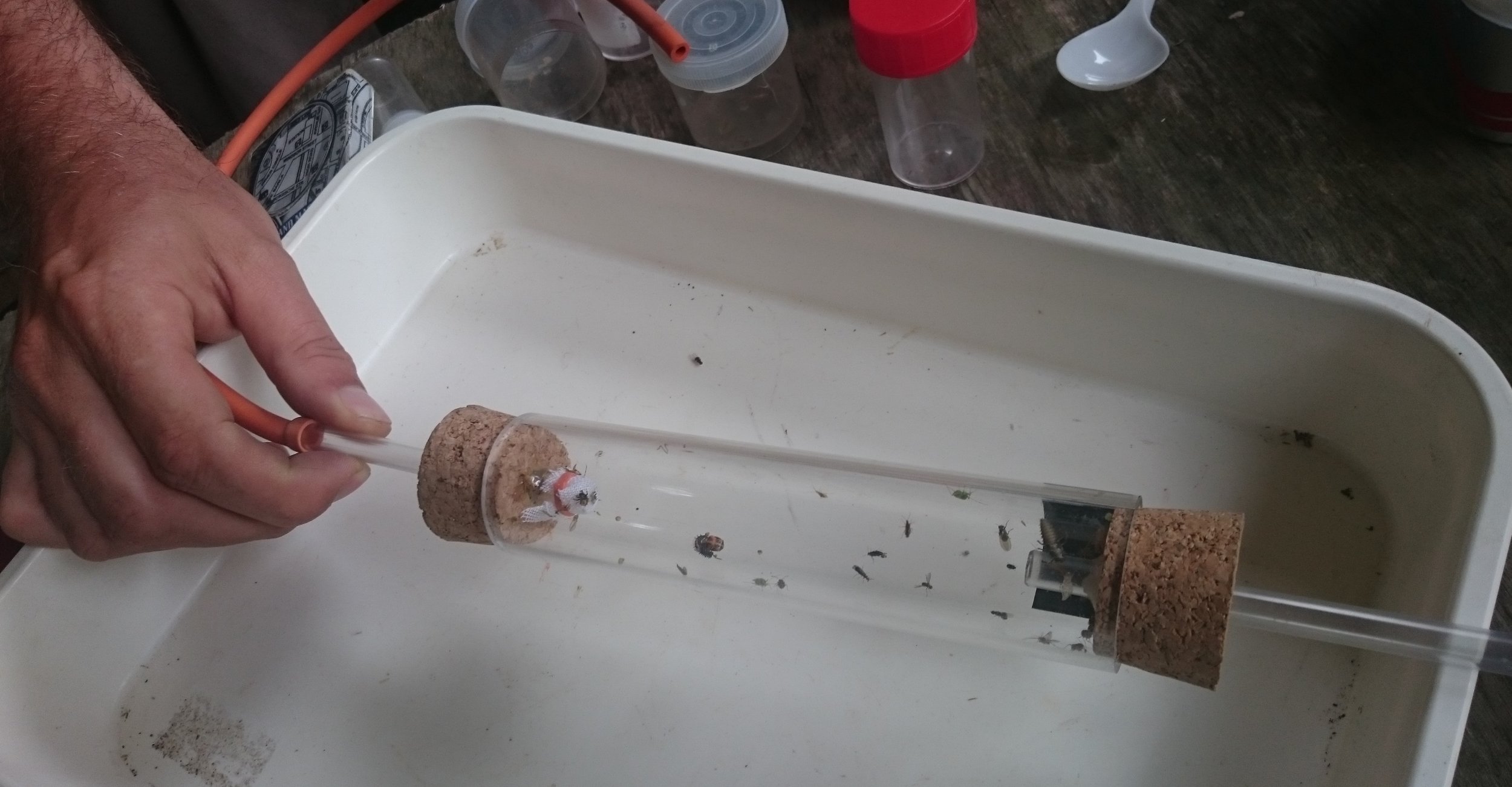
These he tipped into a white tray on the table in the shelter, and everyone picked the bugs he'd caught with their spoons and put them in their tubs. Michael then sucked them up in his pooter so we could identify them. We saw a hopper (Michael explained how amazingly far they hop - if we could do the same, we could hop from the allotment to Lewes!), wood lice, flies and a brown-lipped snail.
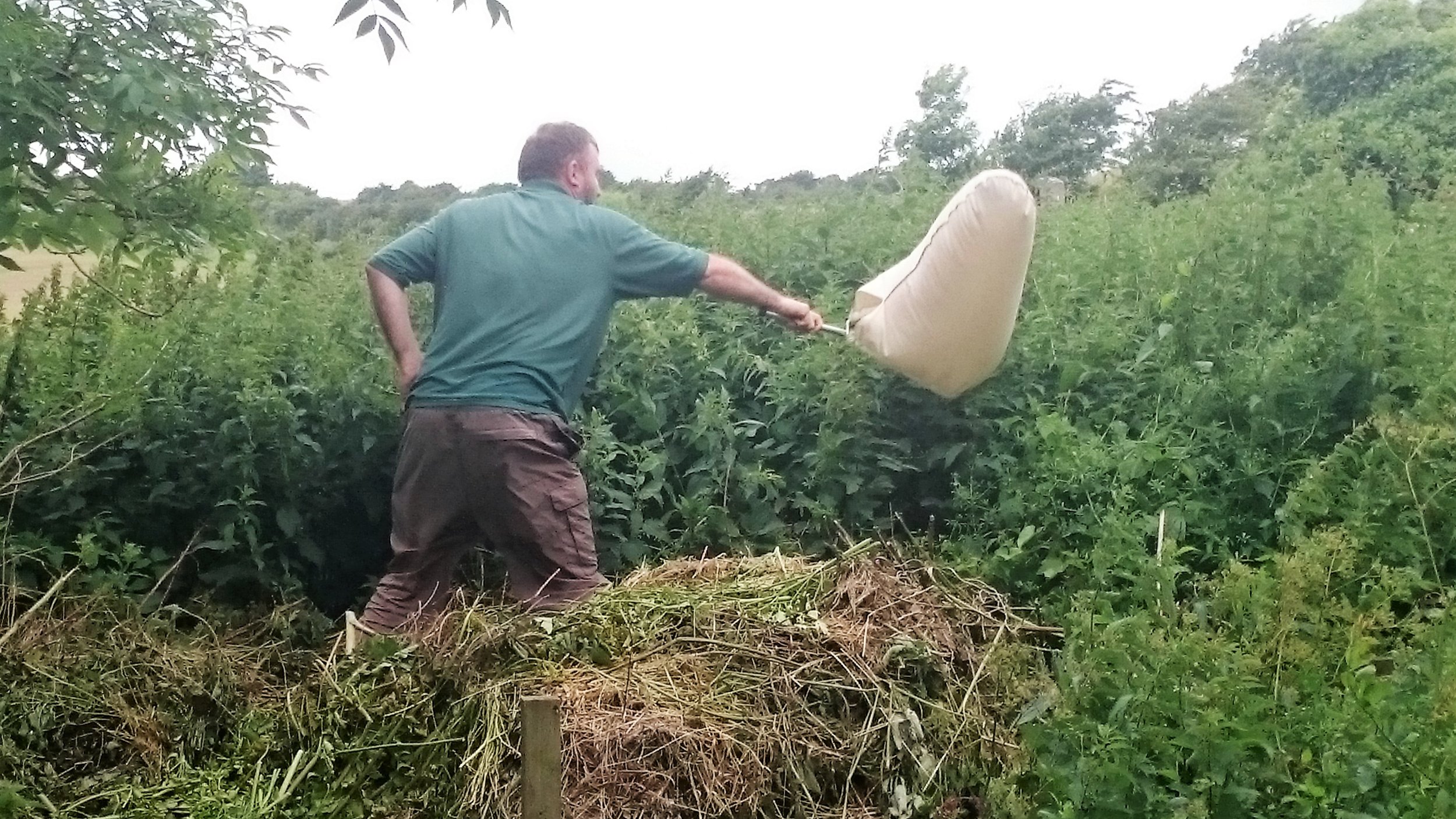
Rather to our surprise, Michael leapt onto the compost heap and wafted his net in the nettle bush behind. The bugs he caught, he then tipped into a tray in the shelter. Everyone scooped them into their tubs and he sucked them up again in the pooter. We saw an ant, flies, and more snails.
Michael showed us what he explained was another new toy - a fold-out 'beating net' - which looked like a big, square umbrella.We pretended it WAS an umbrella for this photo: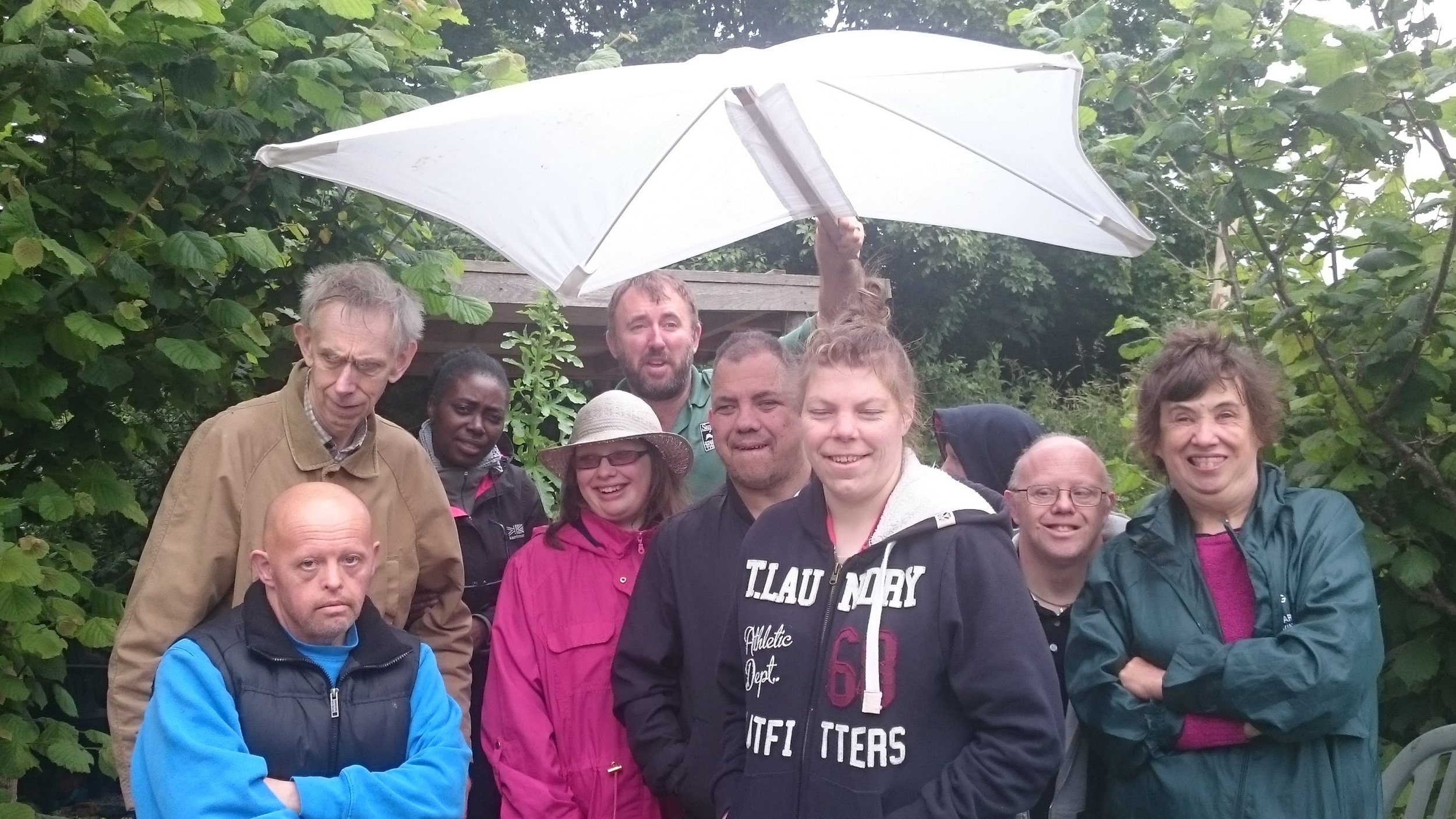
The beating net is for finding insects who live on leaves in the trees. He held it up under a tree, banged the branches, and various insects fell into the net.
He then tipped these into the tray for identification as before. We spotted a young harlequin ladybird and a pupating ladybird, some beetles, plus some flies.
Michael answered questions anyone in the group had.
We then released all the bugs we'd caught.
Signs of Summer
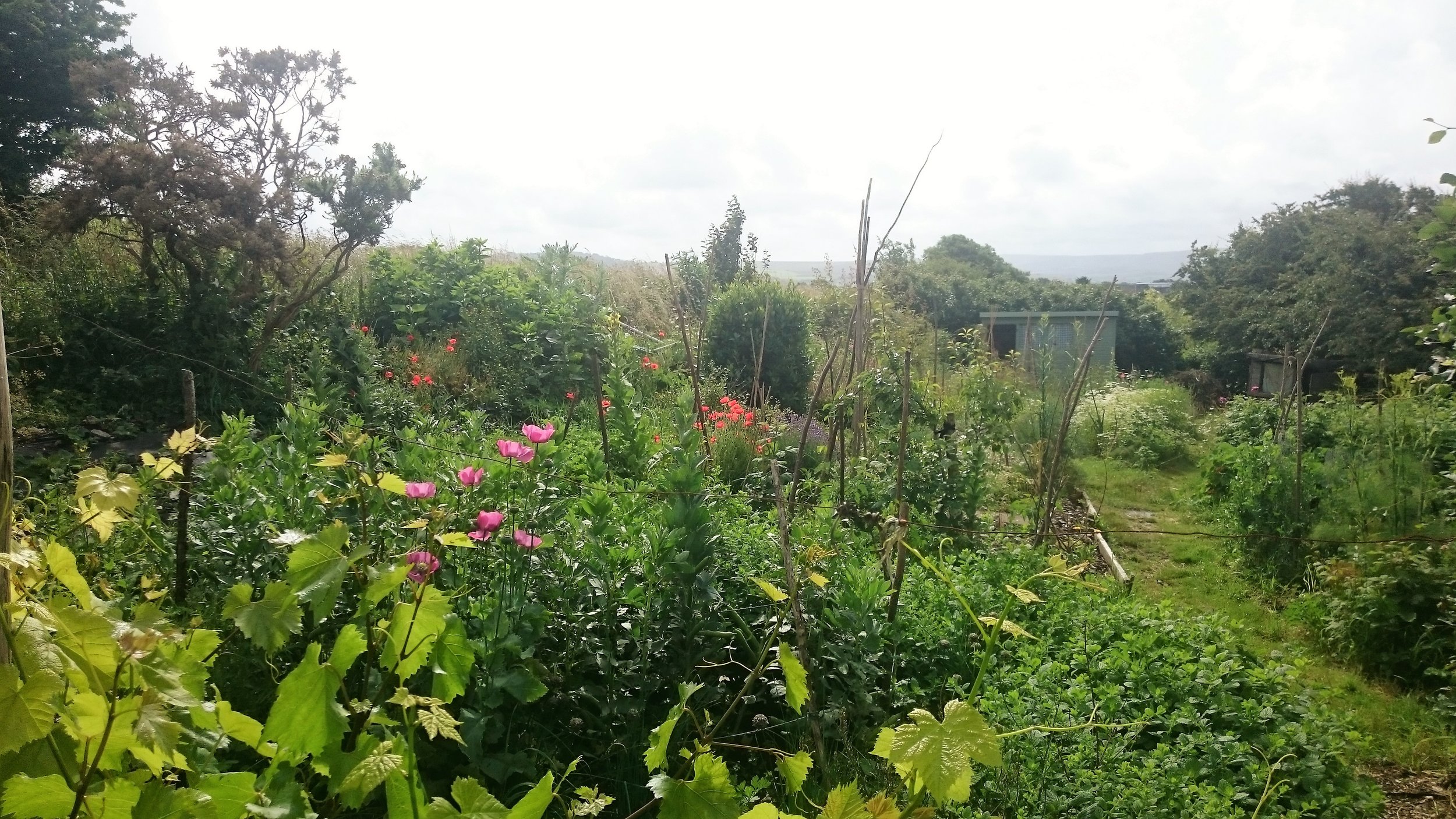
Then we did a walk around the allotment to look for signs of summer. Michael admired our new lovely new shed.
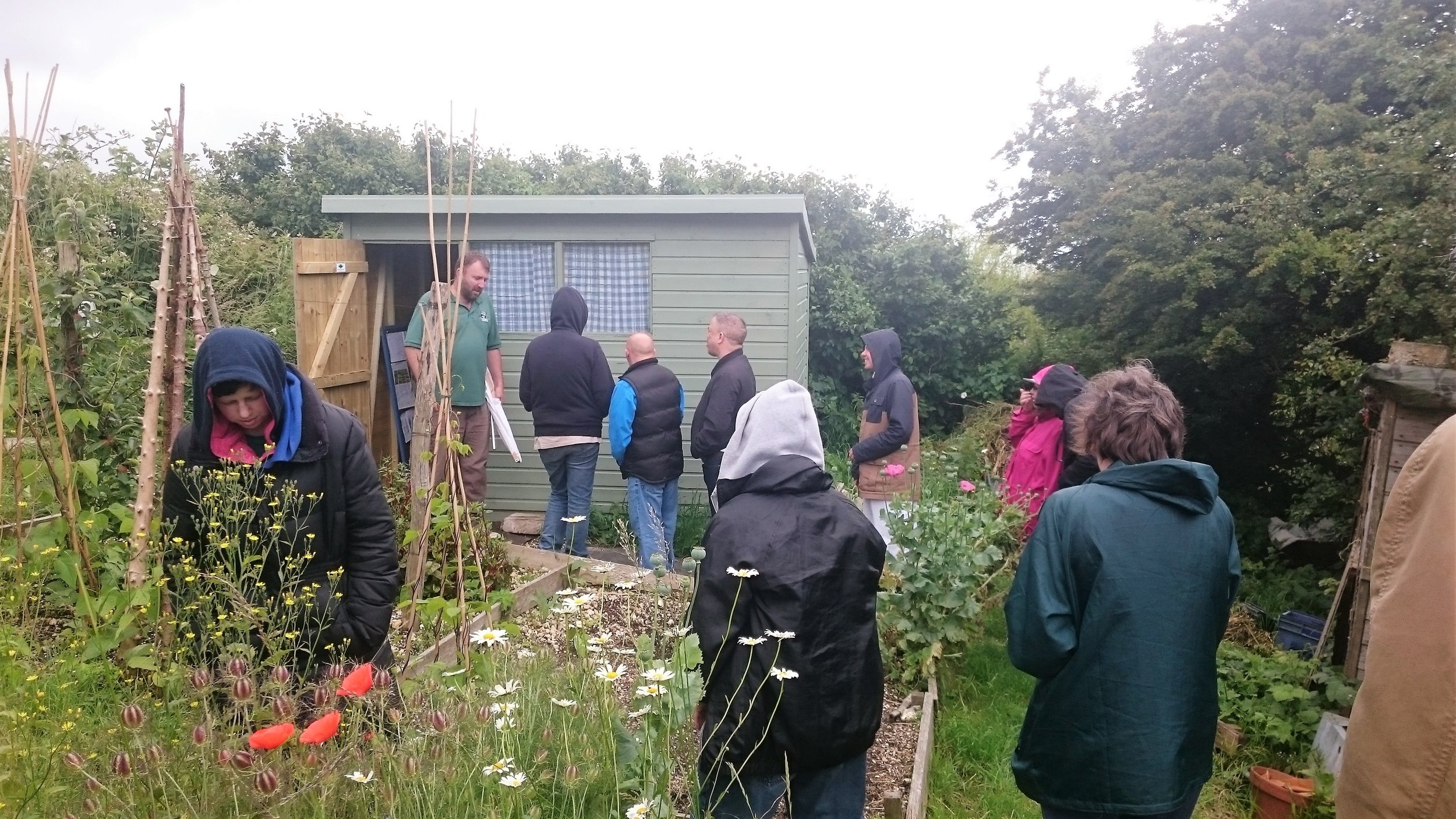
The signs of summer that we all spotted and recorded on our walk were:
- Lots of flowers blooming, including marigolds, poppies, lavender, fox gloves and ox-eye daisies. Allotment members Felicity Ann and Susannah helped us identify some of those
- We saw some bees buzzing around the flowers, and Michael told us that bees waggle their bums to keep warm when it's cold
- We saw and identified different fruit that is not yet ripe - including apples, gooseberries, redcurrants, raspberries and strawberries
- We saw and identified shallots, peas and broad beans
- We saw and heard some birds and Michael talked about how some birds come from below the equator in the summer in search of a warmer climate with insects to eat. They fly thousands of miles.
- We saw an ants nest - yellow meadow ants - and Michael told us that ants move their eggs into the sun to keep them warm - when there IS sun
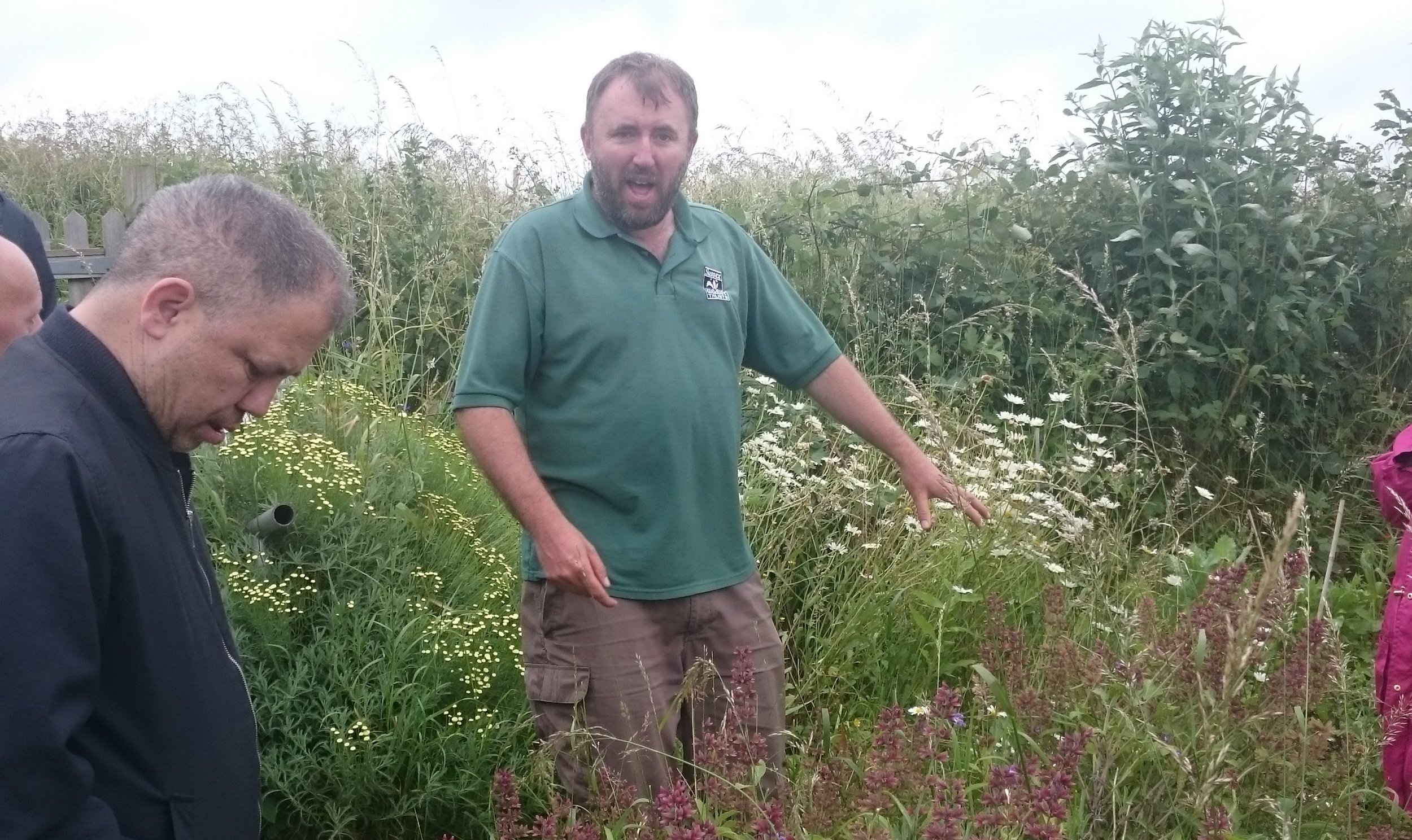
Being a Community Wildlife Officer
Then we went back to the covered shelter for a drink.
Michael talked a little about his job and what he likes about it. He said:
"To do my job I need to be able to engage with different sorts of people, children and adults. As a little boy, I spent lots of time in the wild. You have to like working outdoors - there is a lot of walking - which keeps you fit - but you have to like that."
Michael said he doesn't work alone, he sometimes works with Park Rangers and National Park Rangers, which he enjoys.

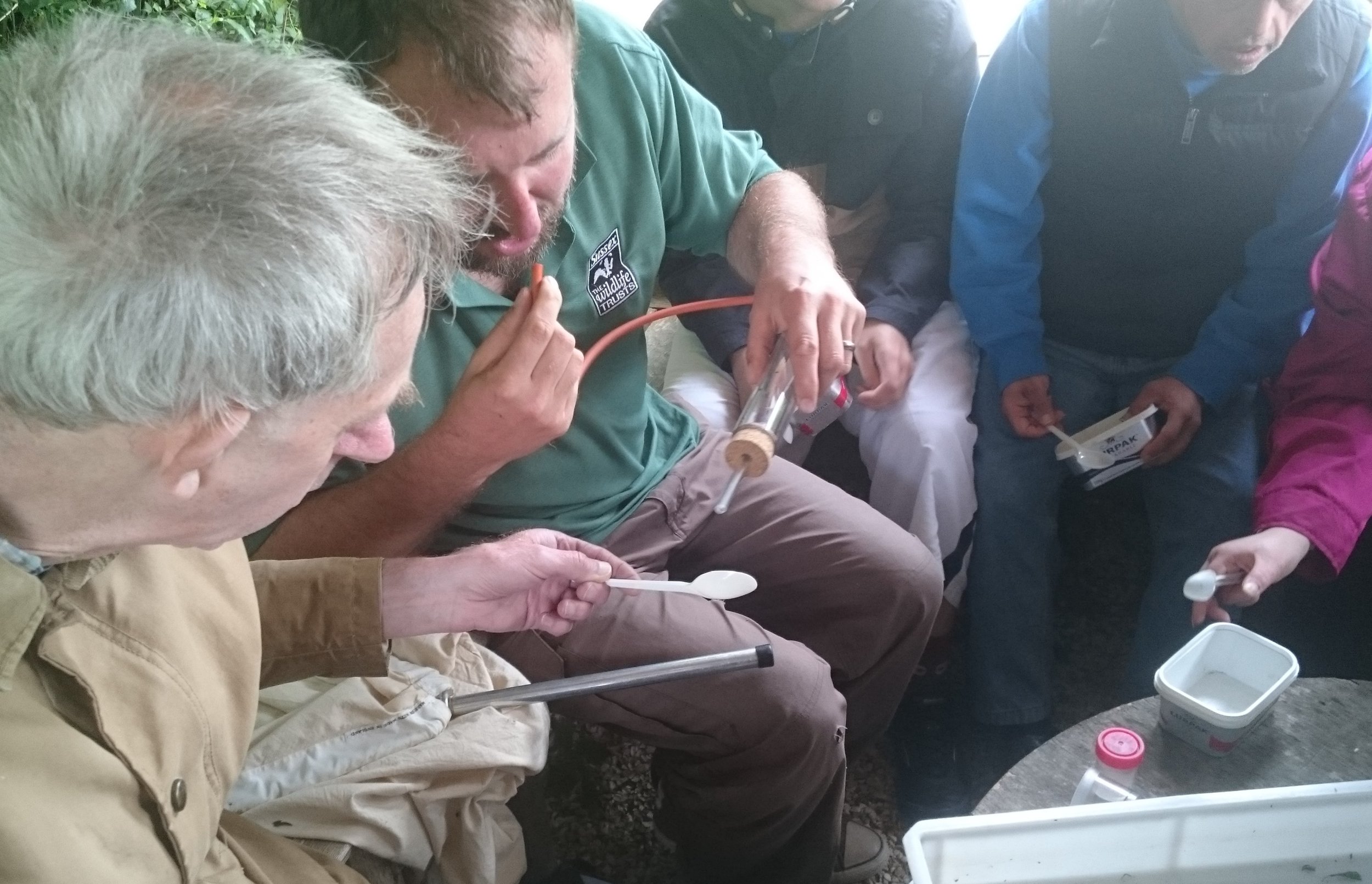
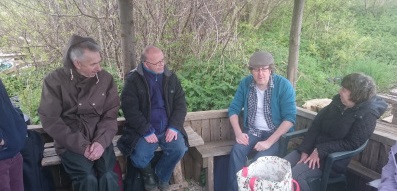
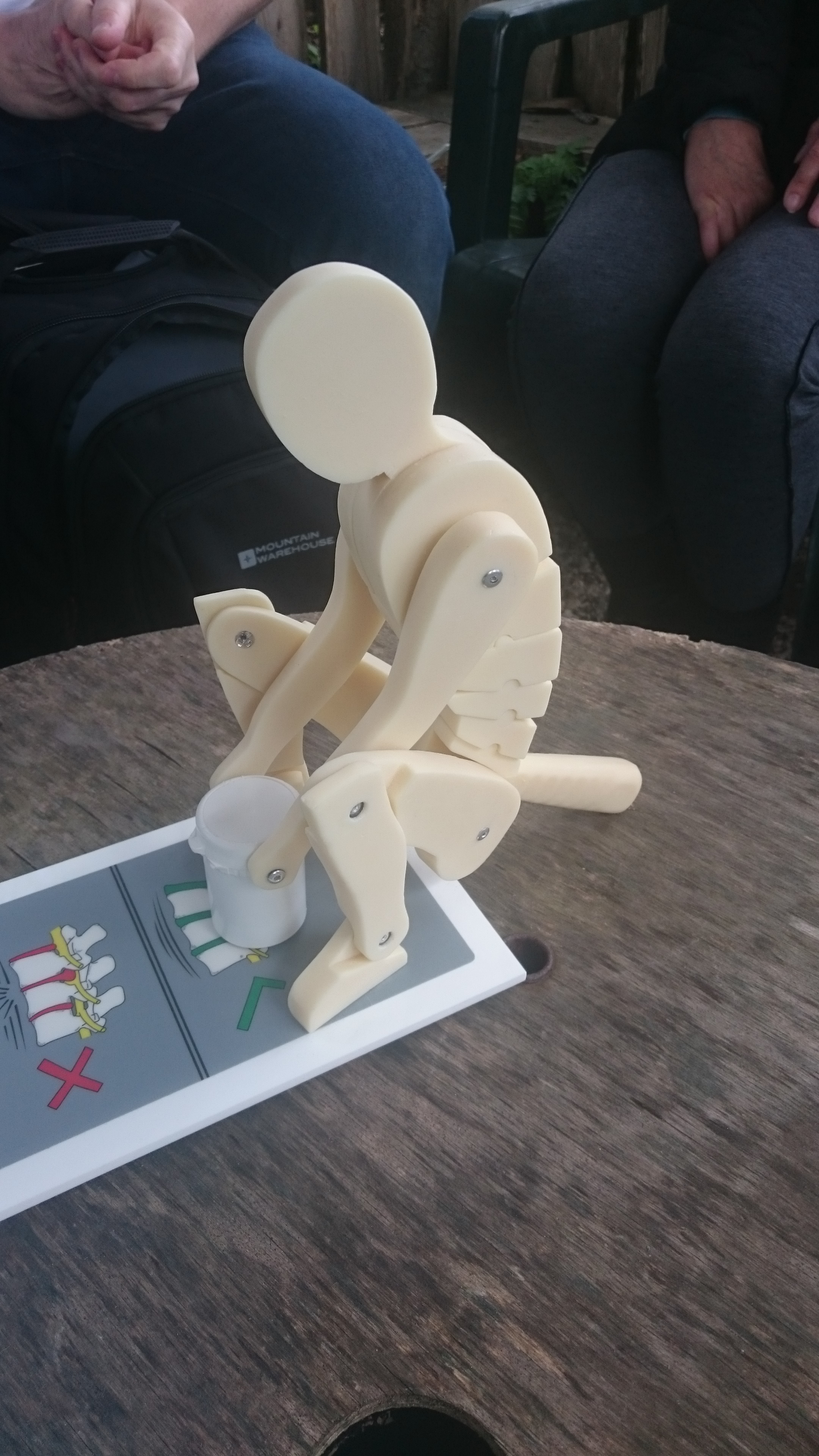
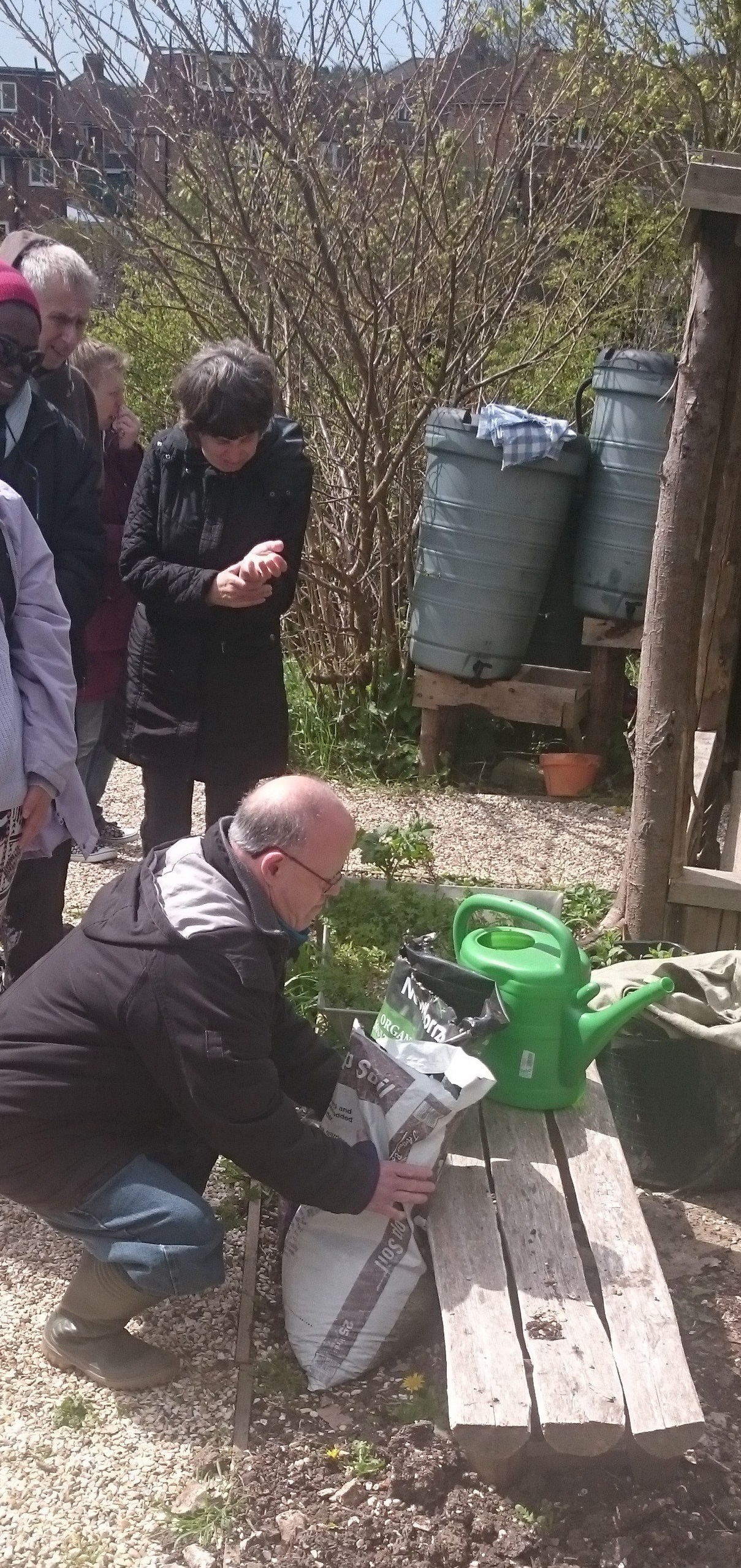
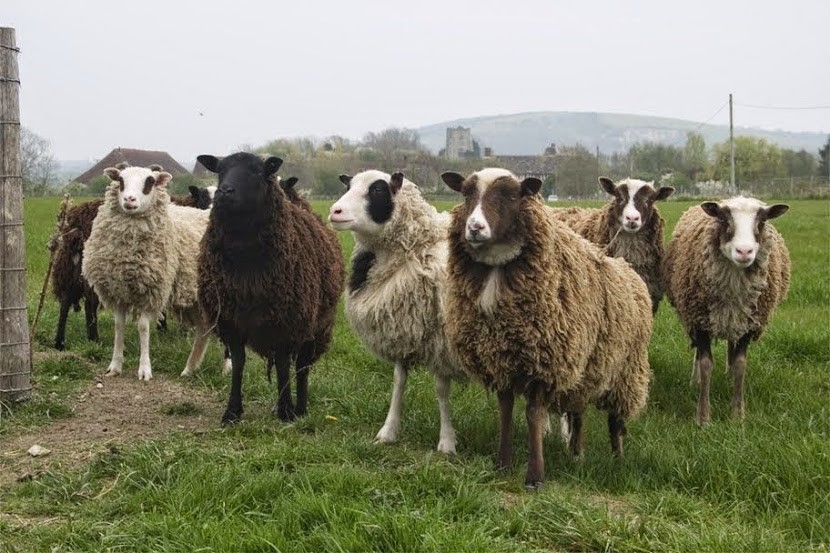


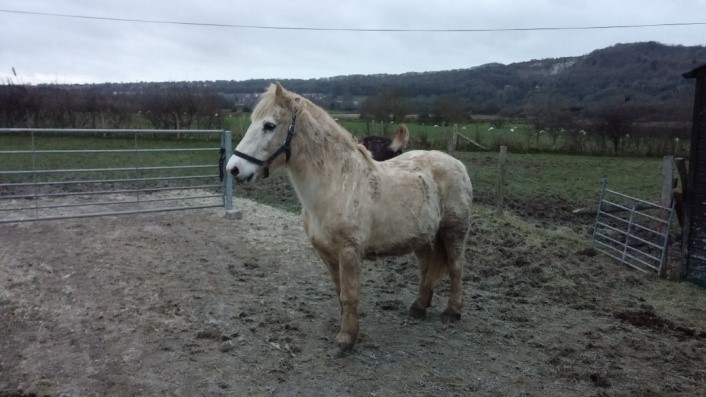
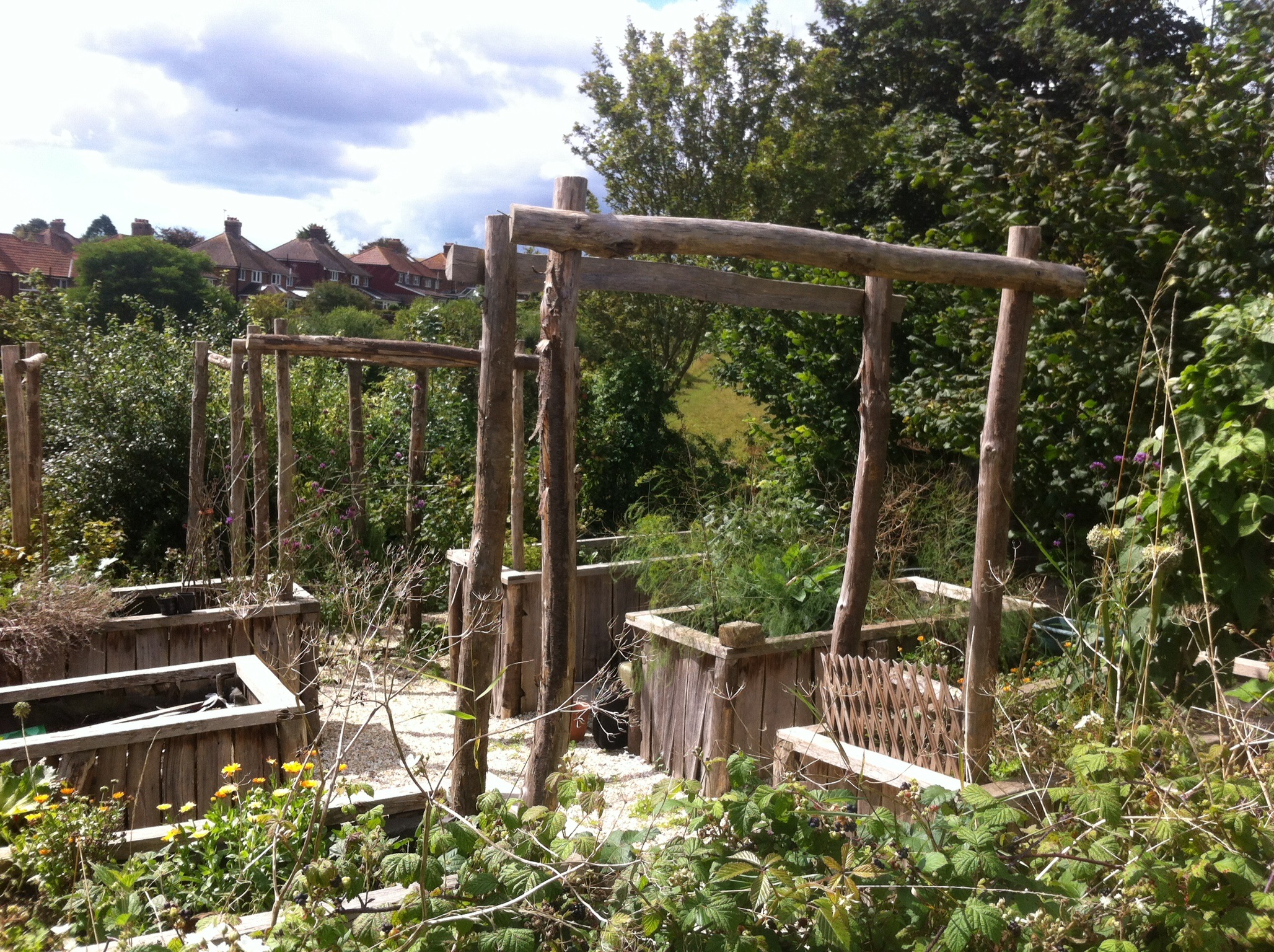
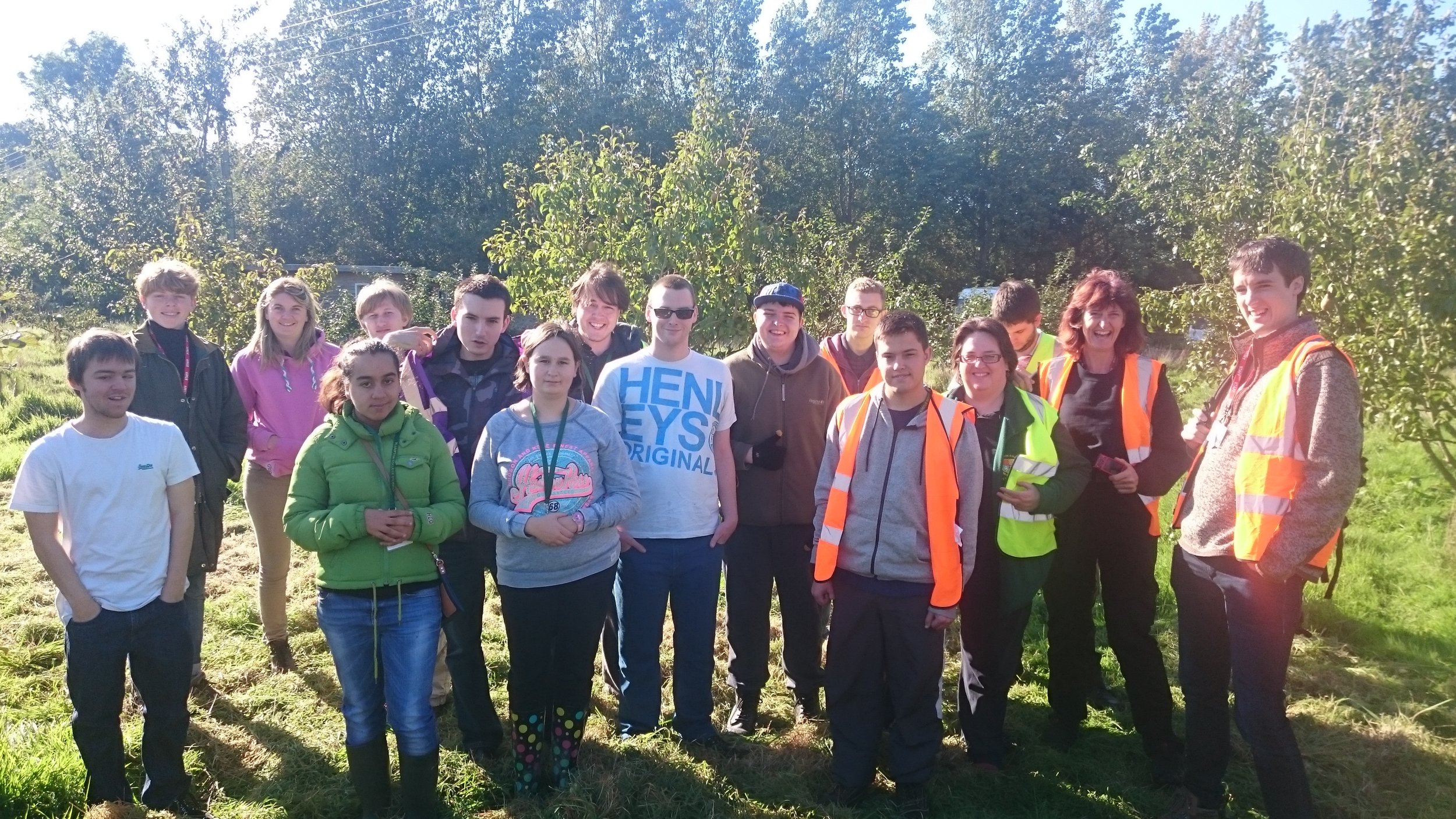

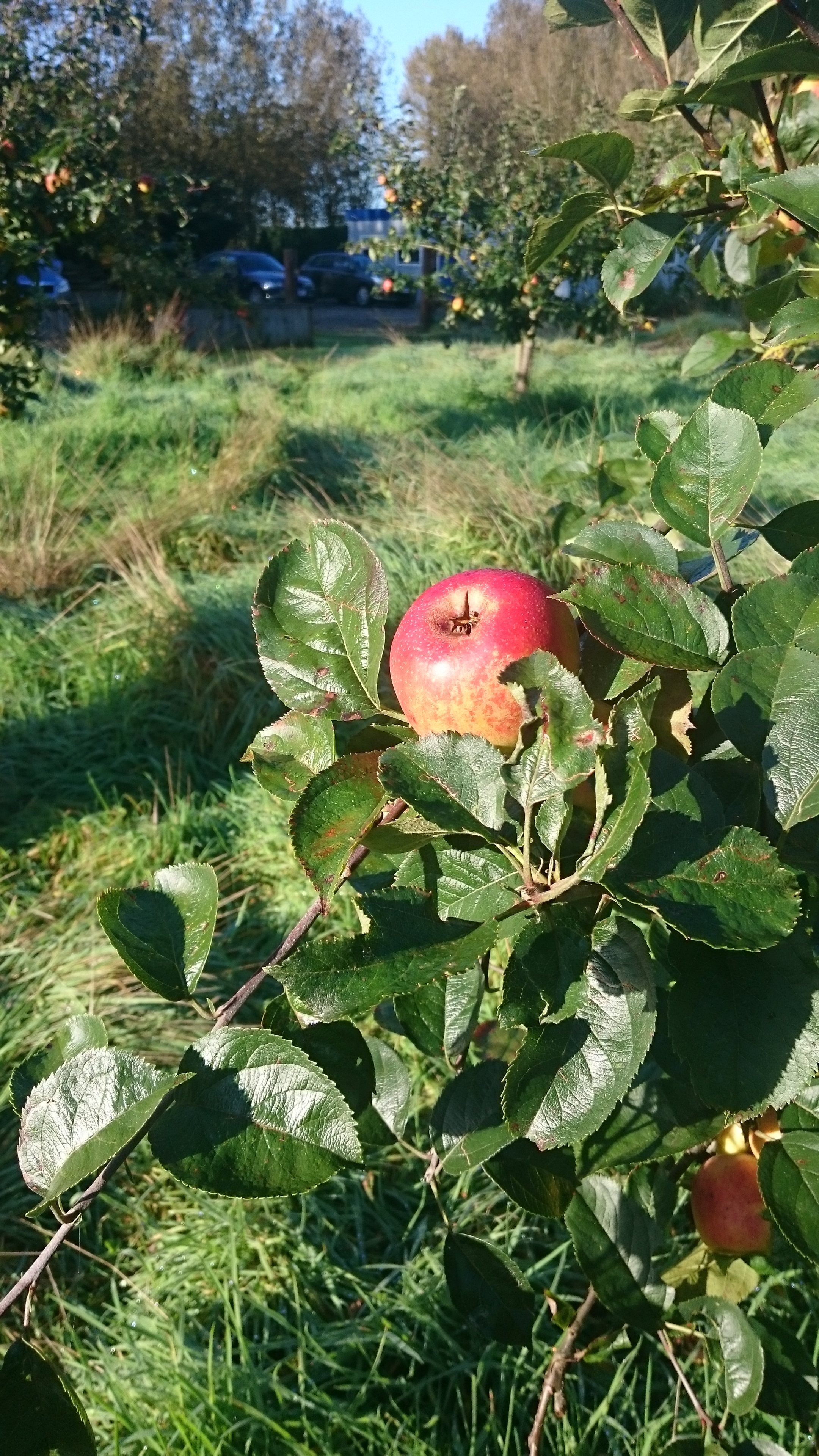
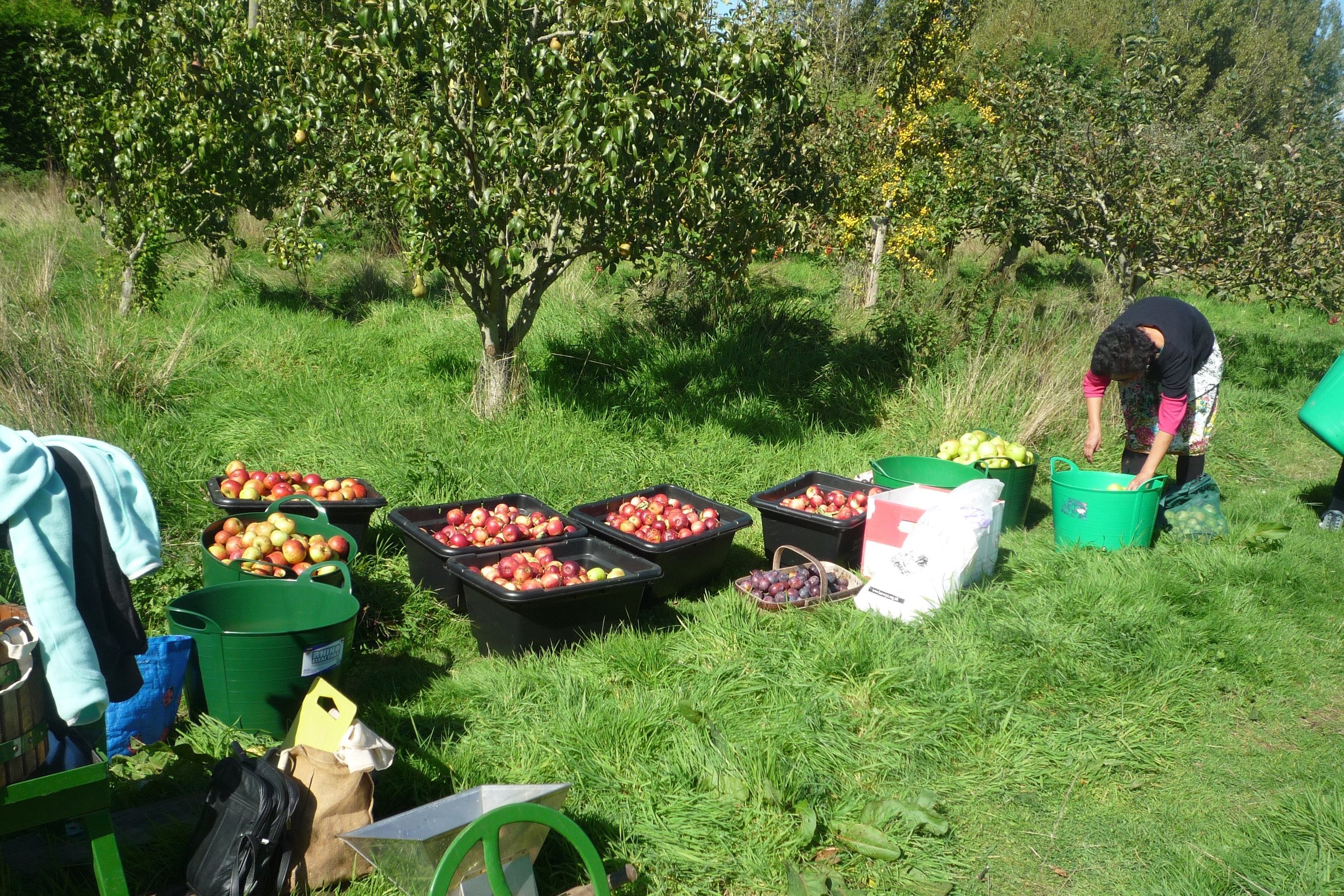
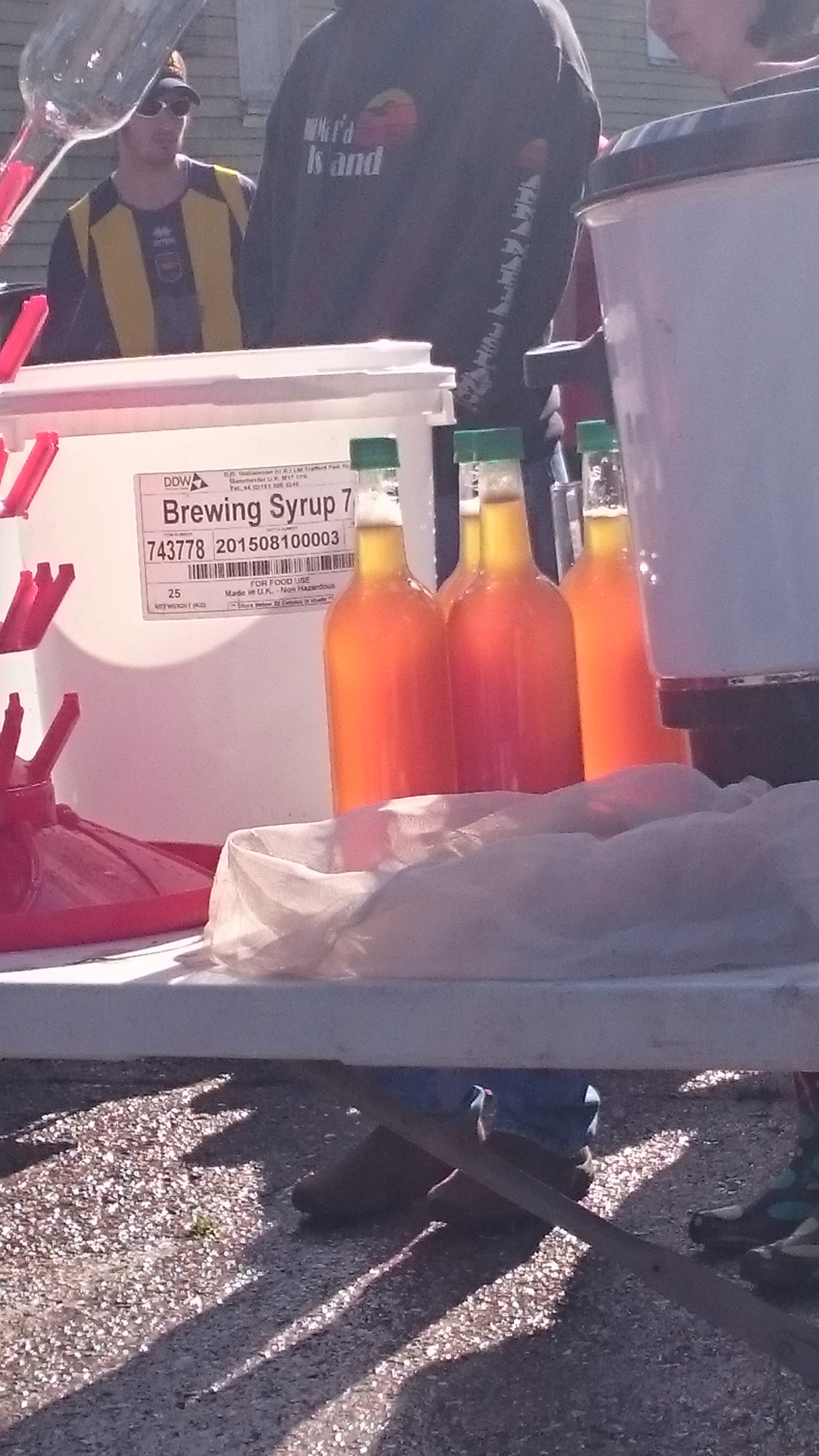
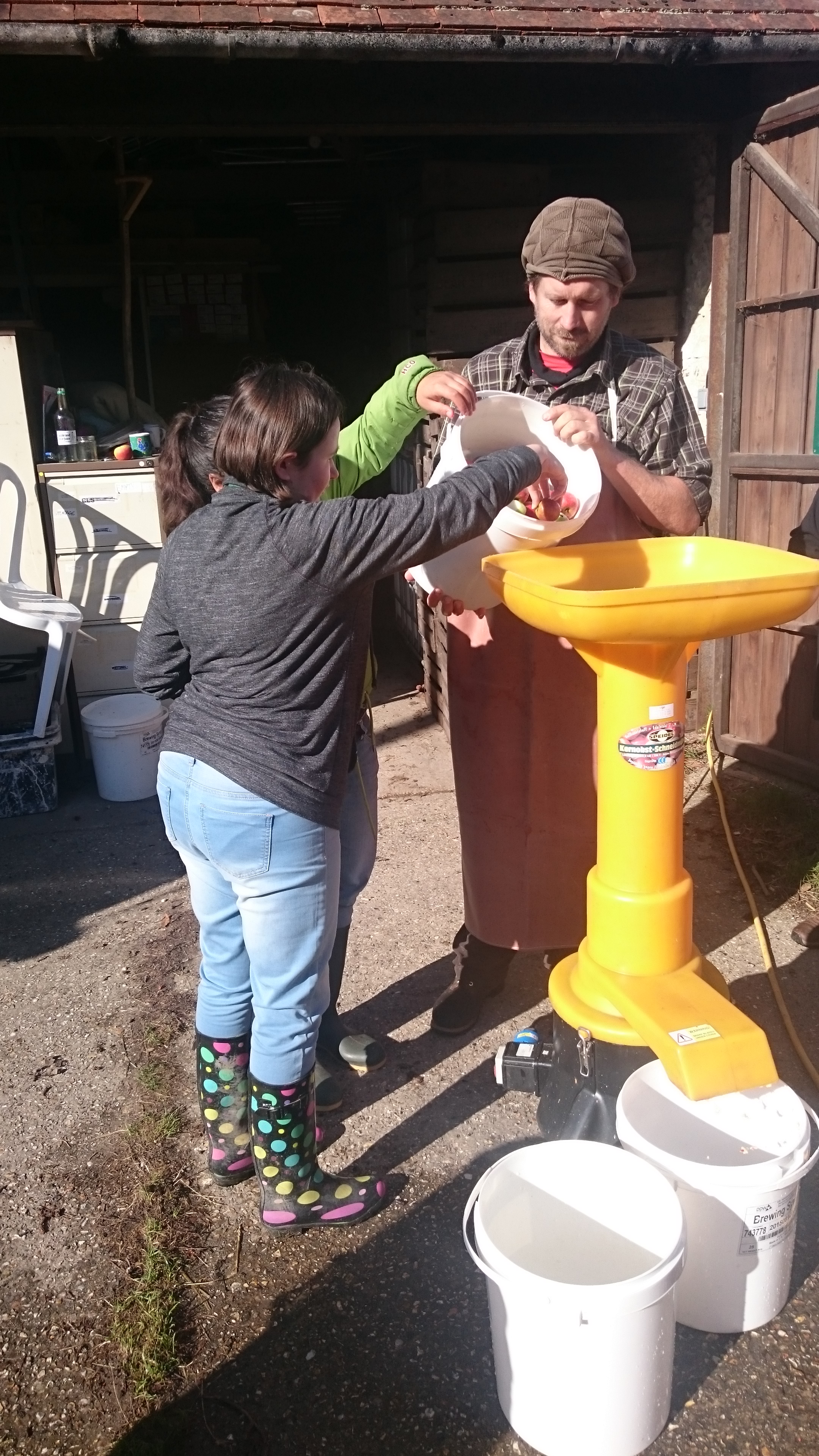
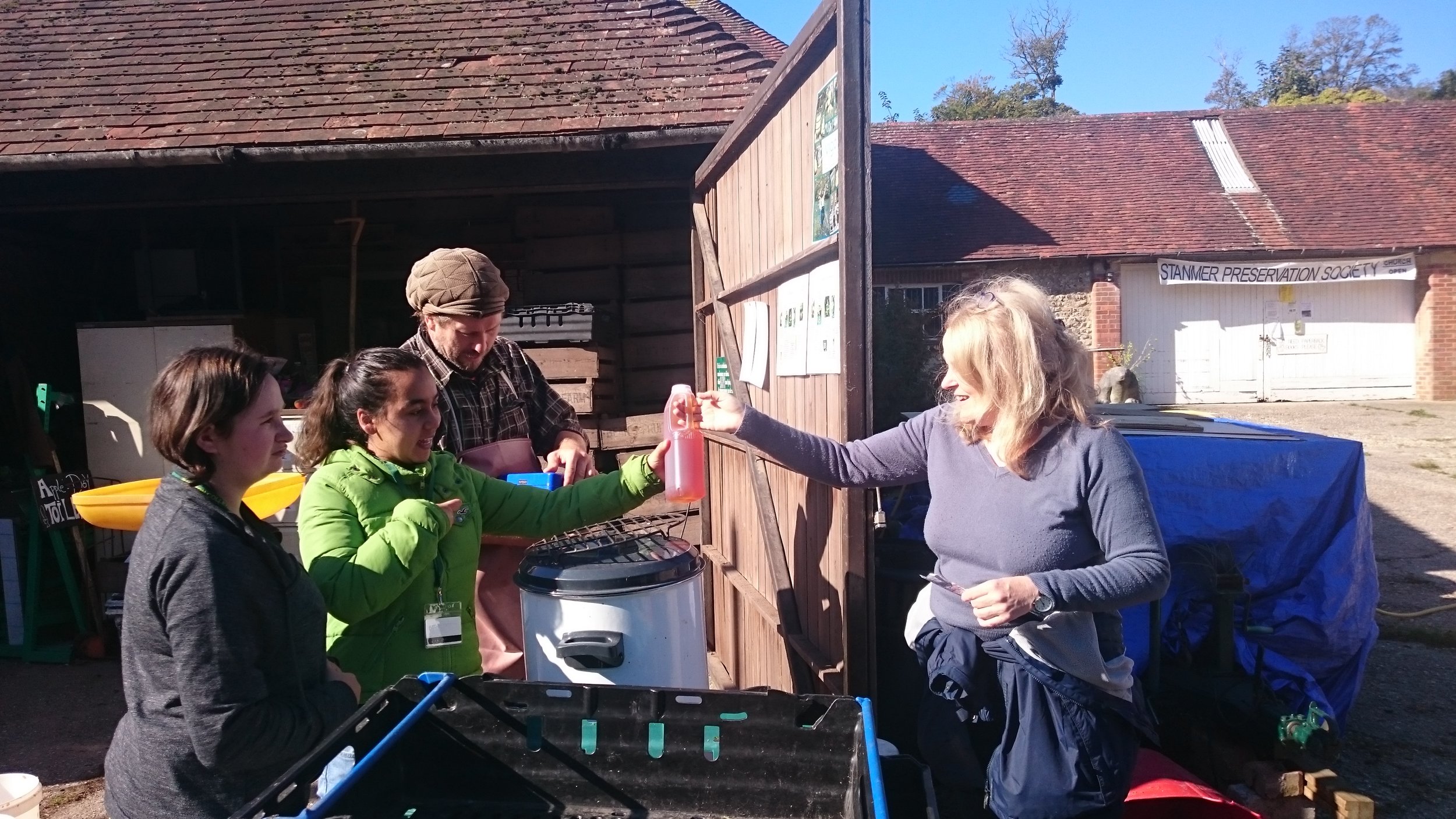
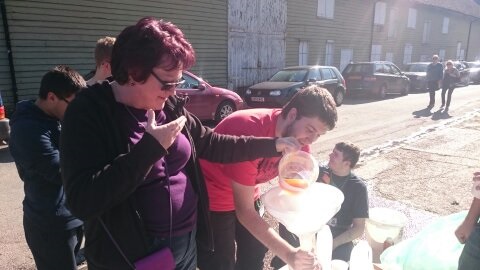
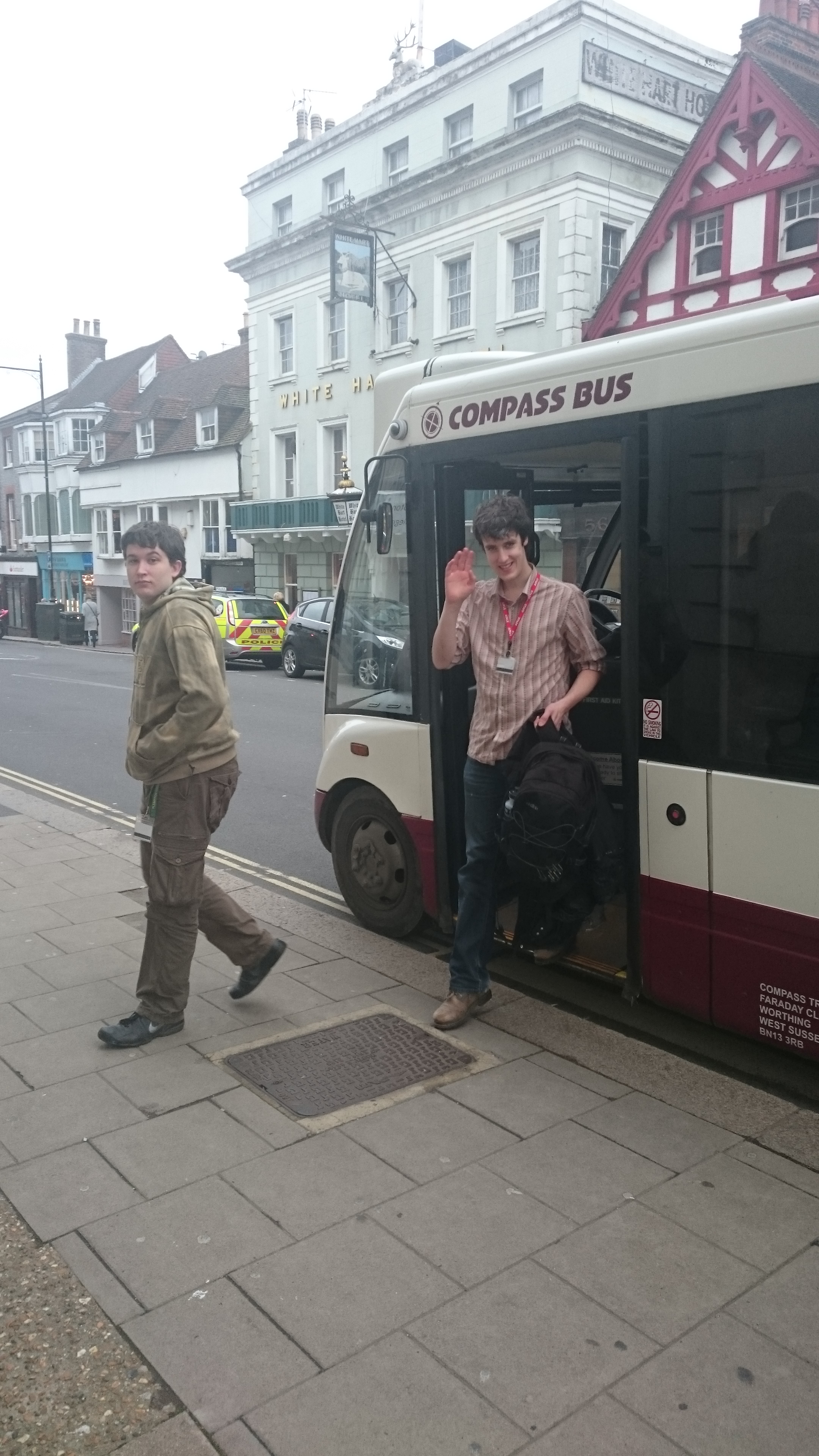
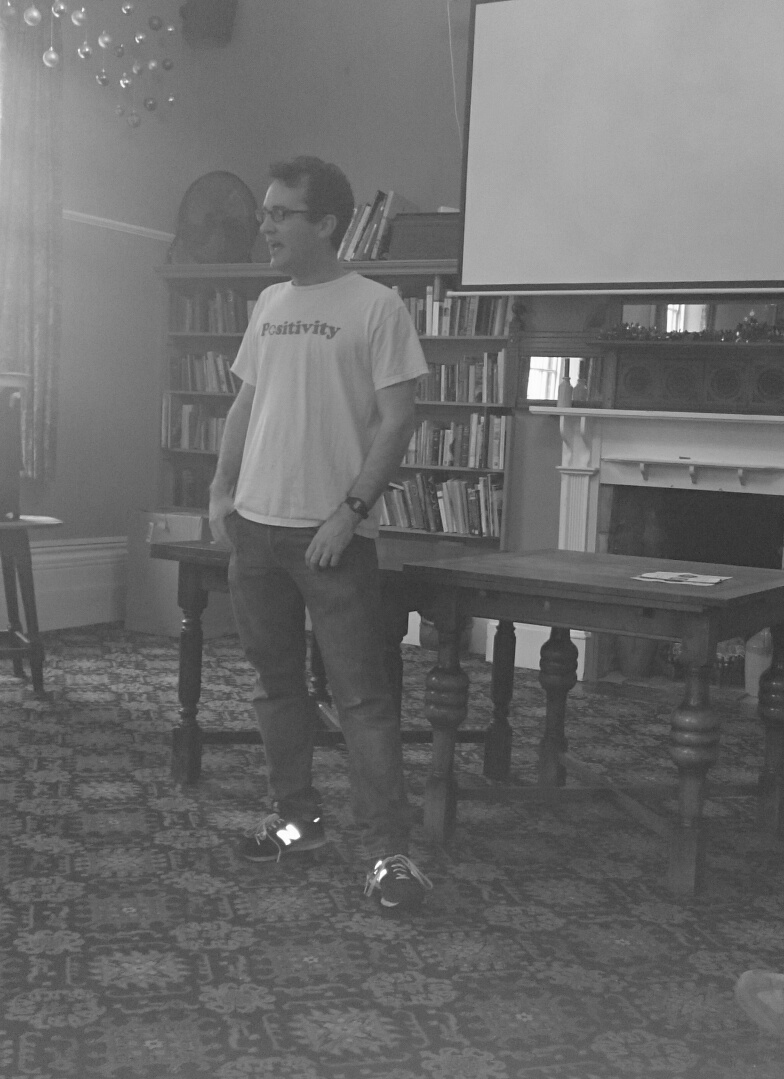 Sara Grisewood from Pleasant Stores came and joined the group and told them about her local vegetarian cafe/shop business. Then Huw and Sara tasted the apple juice, gave incredibly positive feedback about the taste and how good a product it is. They said there were so many factors that would work for them as buyers – the fact that it's made by Plumpton interns, is limited edition, from a single variety of apples grown locally, that no chemicals used in the process or used on the apple trees. They said they would definitely stock it if they could.
Sara Grisewood from Pleasant Stores came and joined the group and told them about her local vegetarian cafe/shop business. Then Huw and Sara tasted the apple juice, gave incredibly positive feedback about the taste and how good a product it is. They said there were so many factors that would work for them as buyers – the fact that it's made by Plumpton interns, is limited edition, from a single variety of apples grown locally, that no chemicals used in the process or used on the apple trees. They said they would definitely stock it if they could.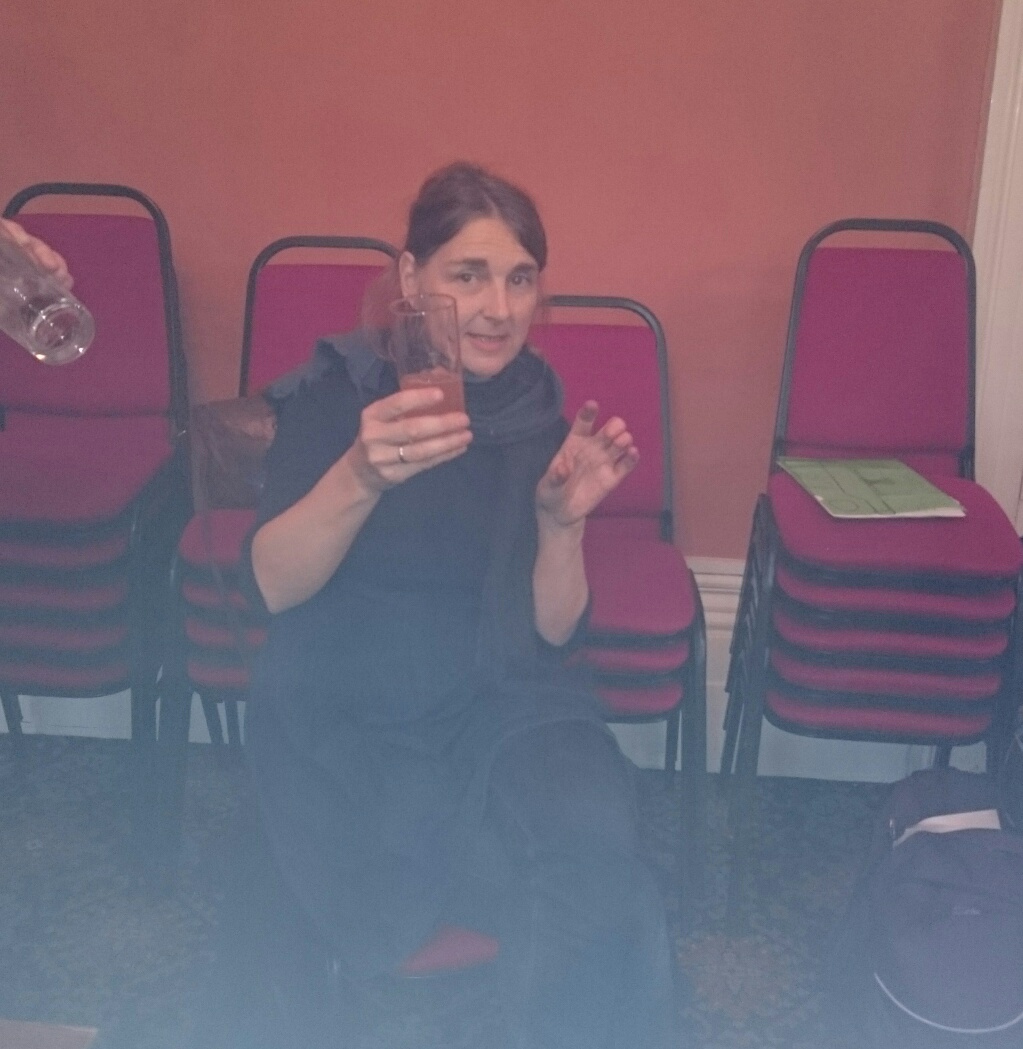
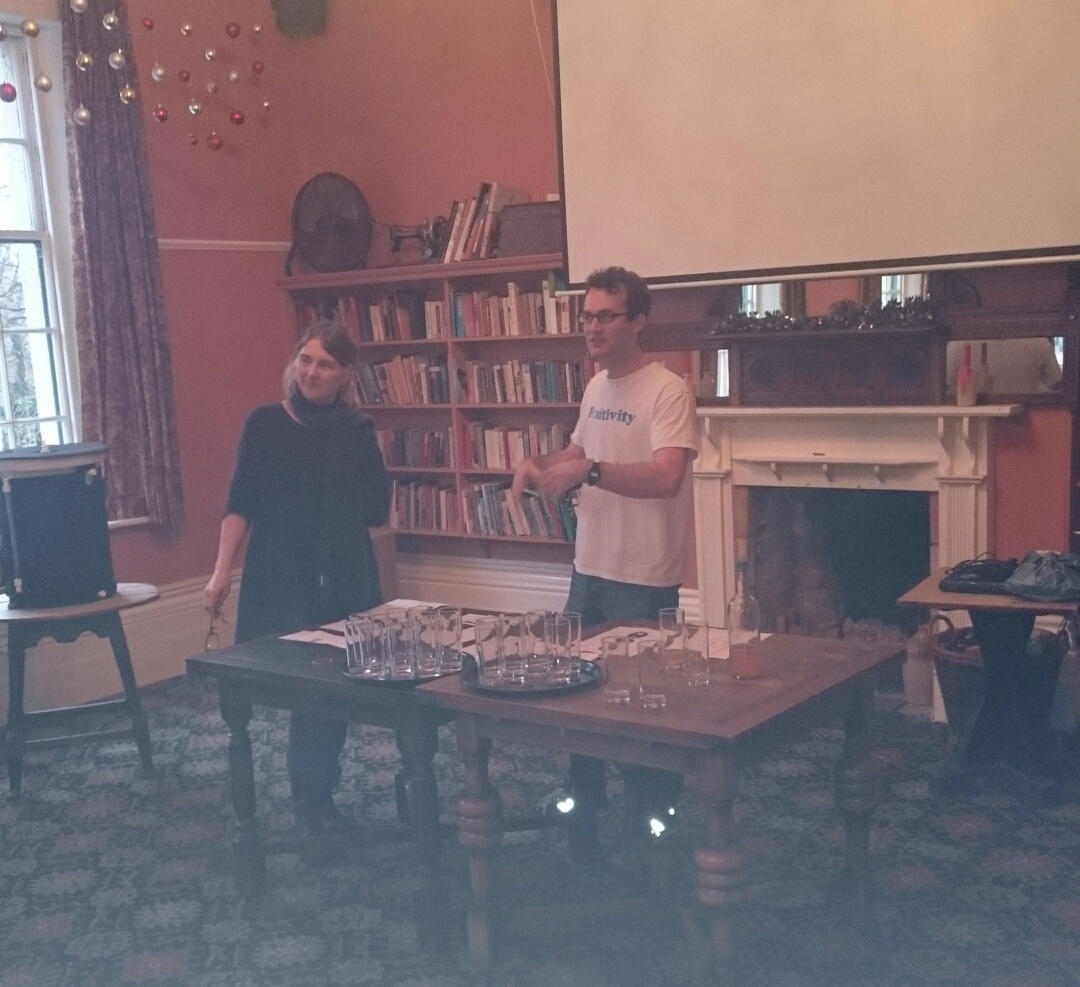
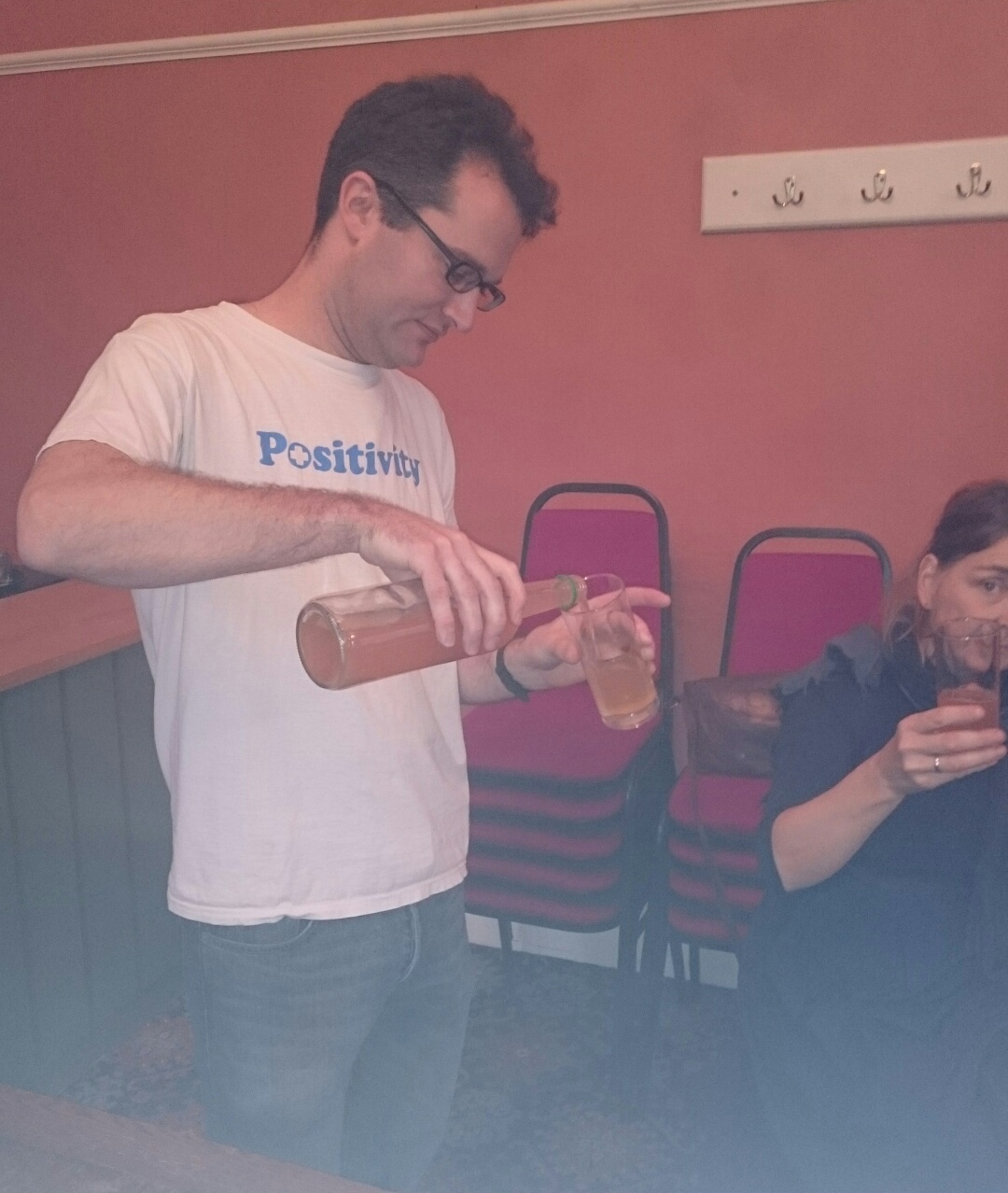
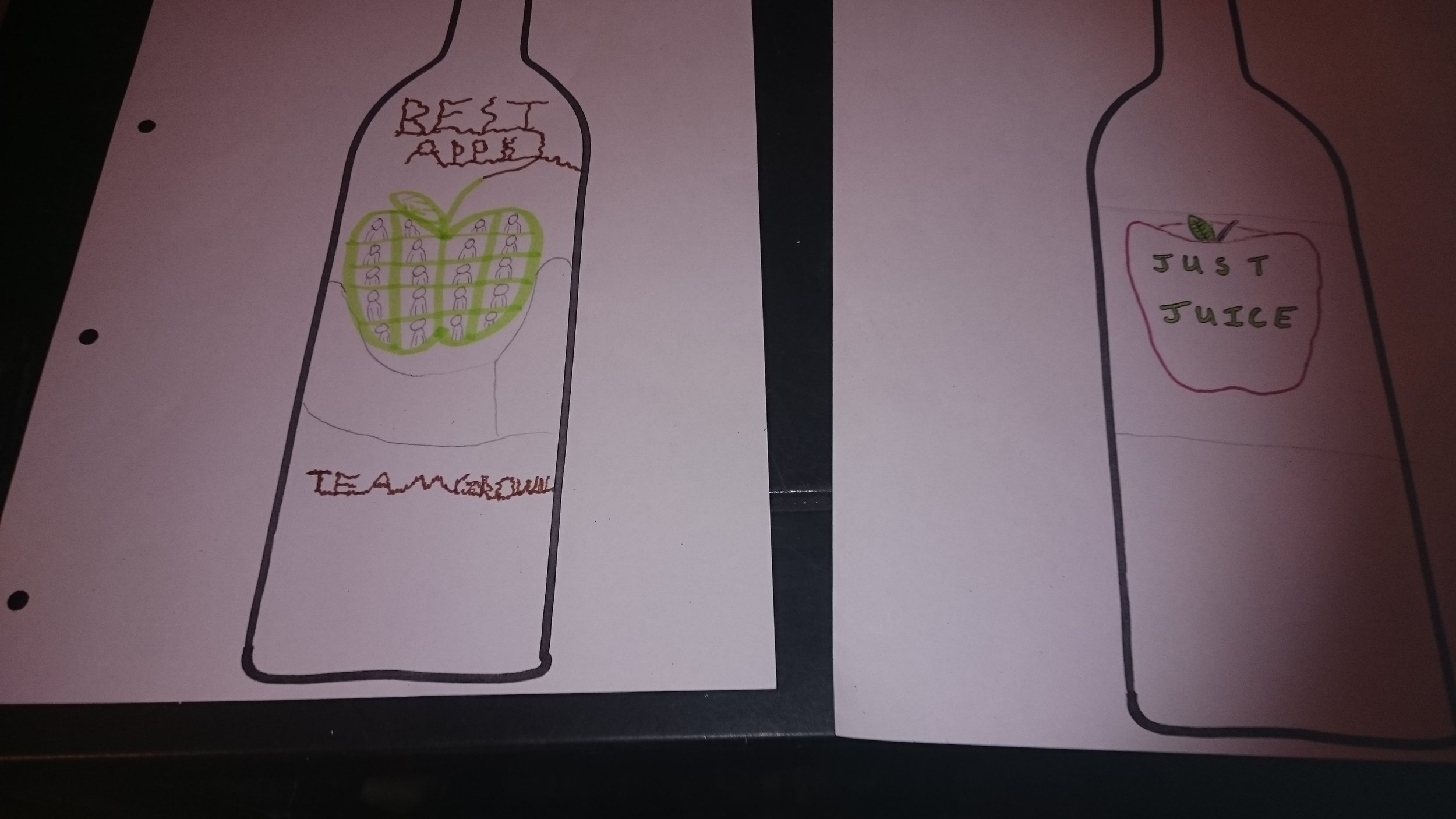
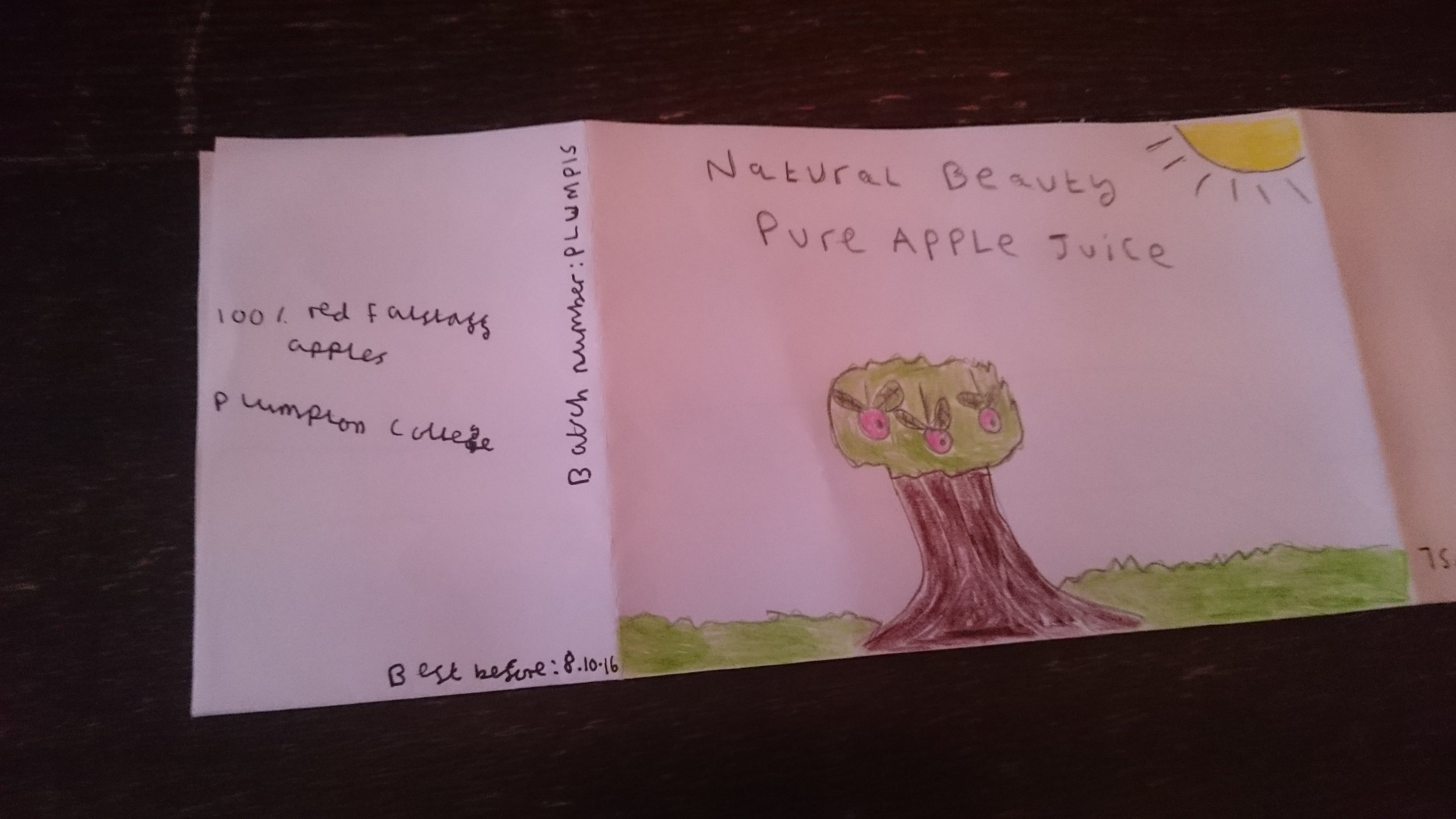
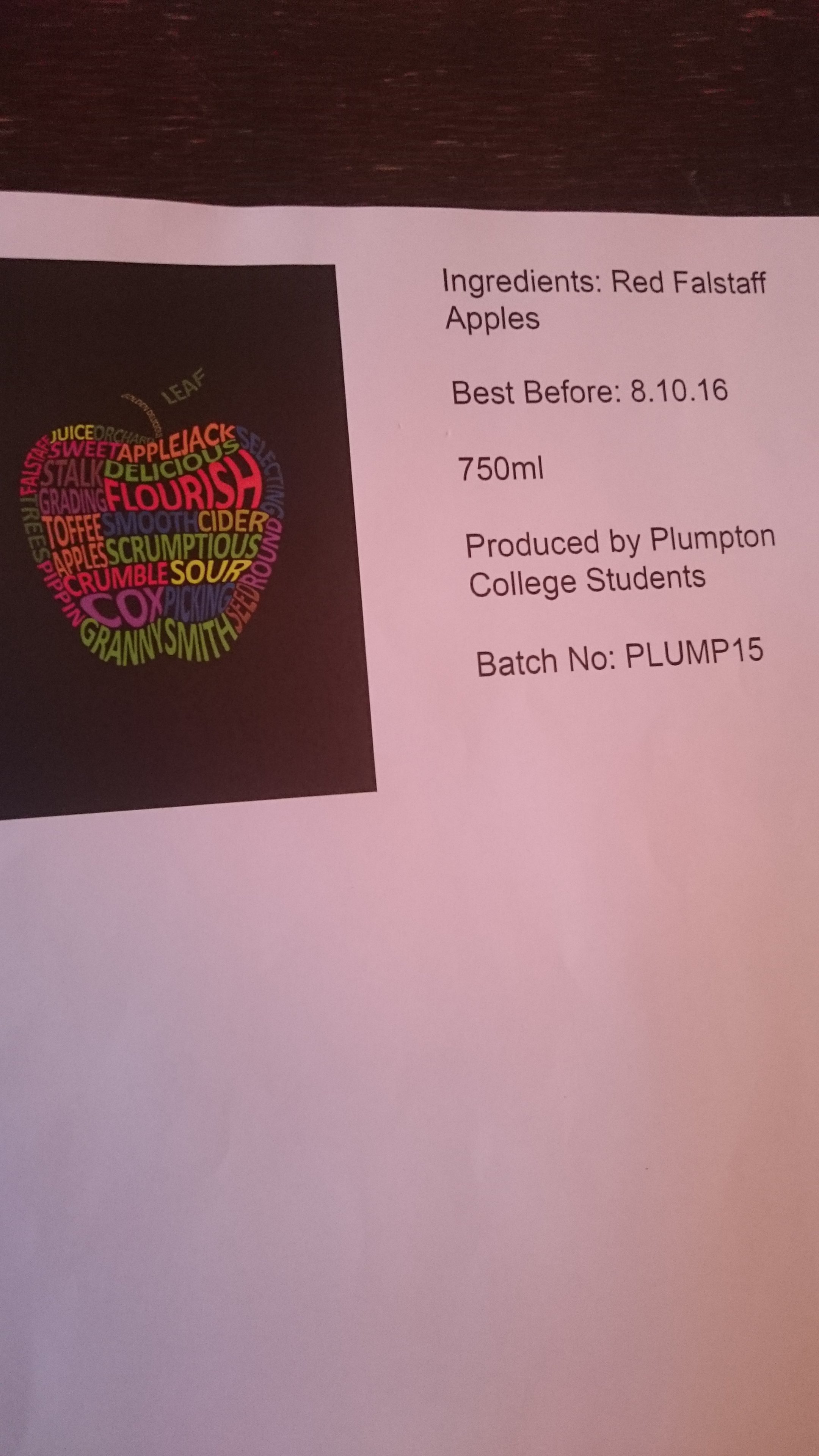
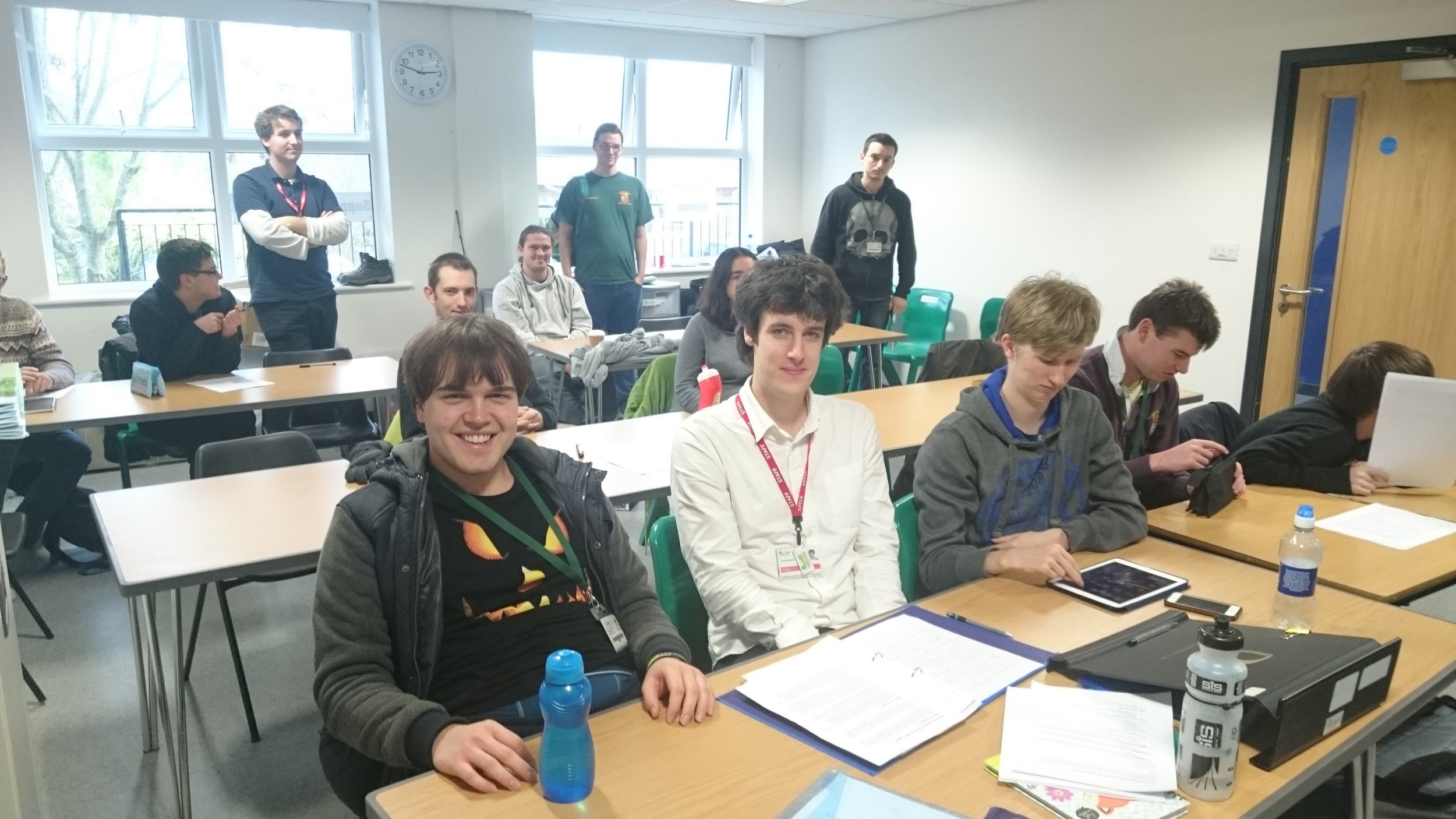
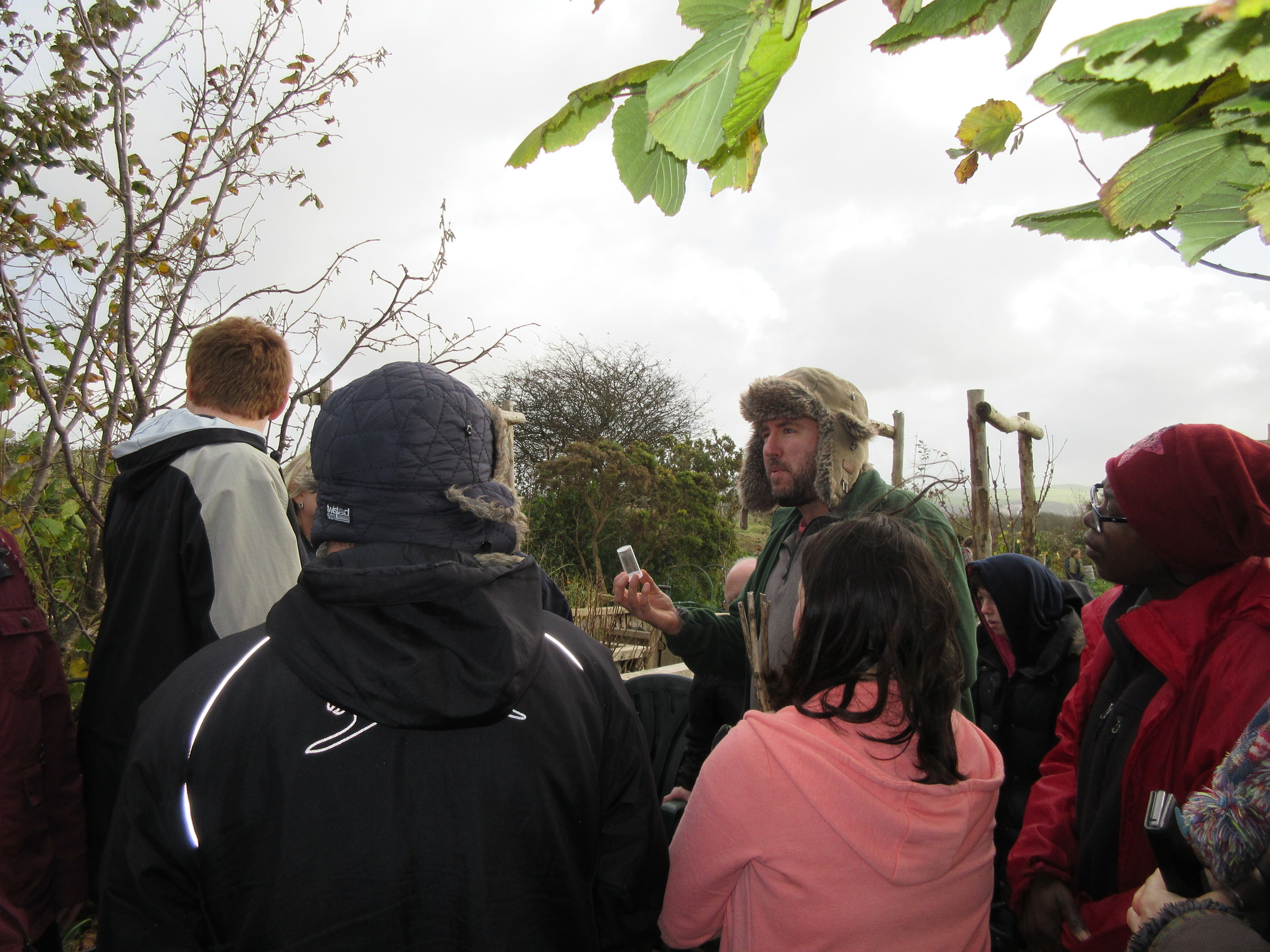 It's always a pleasure to welcome Michael Blencowe from the
It's always a pleasure to welcome Michael Blencowe from the 